#one of the best if not the best midfielder in the current football era
Explore tagged Tumblr posts
Text
You know what’s the biggest robbery, Frenkie De Jong not being nominated for Ballon D’or!?!! The one who also deserves to win one!
#frenkie de jong#what the fuck were they thinking leaving out Frenkie#the way he conducts himself on the pitch leaves me speechless#he’s class#one of the best if not the best midfielder in the current football era
3 notes
·
View notes
Text
Top 10 Legendary Players in Australian Rules Football History

Australian Rules Football (AFL) is a sport rich in history, passion, and remarkable talent. Over the years, numerous players have left an indelible mark on the game, showcasing exceptional skill, leadership, and sportsmanship. Here’s a look at the top 10 legendary players in Australian Rules Football history, who have not only excelled on the field but have also helped shape the sport as we know it today while adhering to the Australian football rules.
1. Gary Ablett Sr.
Often regarded as one of the greatest players in AFL history, Gary Ablett Sr. was known for his incredible athleticism and goal-scoring ability. His unique combination of speed, skill, and strength made him a nightmare for defenders. Ablett's career spanned over a decade with the Geelong Cats, where he achieved multiple awards, including the Brownlow Medal.
2. Leigh Matthews
Leigh Matthews is a name synonymous with Australian Rules Football. Renowned for his toughness and determination, Matthews played for the Hawthorn Hawks and later transitioned into a successful coaching career. He won numerous premierships as both a player and coach, and his impact on the game is still felt today.
3. Dustin Martin
A modern-day legend, Dustin Martin has redefined the game with his explosive playing style. The Richmond Tigers star has won multiple Norm Smith Medals and played a key role in Richmond's recent premiership success. His ability to dominate matches makes him one of the best players in the current era.
4. Tony Shaw
As the captain of the Collingwood Magpies, Tony Shaw led his team to a premiership in 1990. Known for his fierce competitiveness and exceptional leadership skills, Shaw remains a respected figure in the AFL community. His commitment to the game exemplifies the spirit of Australian Rules Football.
5. Ron Barassi
Ron Barassi is a true icon of the game, known for his influential playing and coaching career. He played for the Melbourne Demons and later for the Carlton Blues, where he won multiple premierships. Barassi is credited with revolutionizing the way the game is played, particularly with his emphasis on teamwork and strategy.
6. Simon Black
A three-time premiership player with the Brisbane Lions, Simon Black was renowned for his exceptional skills and ability to read the game. He won the Brownlow Medal in 2002 and is remembered for his consistency and leadership on the field, contributing significantly to the Lions' success during the early 2000s.
7. Gary Ablett Jr.
Following in the footsteps of his father, Gary Ablett Jr. has established himself as one of the greatest players of his generation. Known for his remarkable ball skills and goal-scoring ability, he has achieved numerous accolades, including multiple Brownlow Medals and All-Australian selections during his time with the Geelong Cats and Gold Coast Suns.
8. James Hird
James Hird is celebrated for his outstanding career with the Essendon Bombers. A dynamic midfielder known for his incredible skills and football intelligence, Hird won the Brownlow Medal in 1996 and led Essendon to a premiership in 2000. His legacy in the sport continues through his involvement in coaching and mentorship.
9. Peter Hudson
A prolific goal-scorer, Peter Hudson is considered one of the best forwards in AFL history. Playing primarily for the Hawthorn Hawks, he set a record for the most goals in a season (or "goal-kicking") that still stands today. Hudson's accuracy and poise in front of goal made him a fan favorite and a true legend of the game.
10. Chris Judd
Chris Judd is widely regarded as one of the most complete players in Australian Rules Football history. He won the Brownlow Medal twice while playing for the West Coast Eagles and Carlton Blues. His ability to dominate matches and influence the game, combined with his professionalism, has left a lasting legacy in the AFL.
These legendary players have not only excelled individually but have also contributed to the growth and popularity of Australian Rules Football. Their exceptional skills, dedication, and adherence to the Australian football rules have inspired countless fans and aspiring athletes. As the game continues to evolve, the legacies of these players will forever be etched in the history of the sport, reminding us of the incredible talent and passion that define Australian Rules Football.
0 notes
Text
Barca will always miss having Neymar on their team and that is the truth. Even though I don’t like to talk about the PSG-Barca comeback because of the refereeing in the match, Neymar during that match was incredible. He believed it until the last minute even when Messi gave up. No one in this current Barca squad has such a mentality and willpower to fight. No one was making the necessary runs when their midfield had the ball and no one believed they could come back as soon as the 5th goal was scored. I may not be a Barca fan but I am a fan of football and it is truly sad to see a team like Barca suffer to this point.
Also : Barca haven’t found the replacements for Xavi, Iniesta and Neymar nor will have they found a coach like Guardiola or even Luis Enrique.
This team needs a big revamp not only on the coaching side, but on the players and their mentality. Both defense and attacking needs to be looked after. THERE ARE SO MANY PROBLEMS. (Stop saying it’s just defense)
I know Champions League is hard and tough to play because you’re always against the best. But you cannot rely on Messi. He is a goat but stop relying on him to do everything. And being a team called Fc Barcelona, you cannot lose like for 3-4 consecutive years. It just cannot happen.
A wake up call has to happen and I hope we can go back to seeing some good football from their side. The one that was played during Guardiola’s era and in 2015.
#fc barcelona#champions league#messi#pep guardiola#barca#fc barca#suarez#griezmann#neymar#xavi#iniesta
28 notes
·
View notes
Text
on hendo winning the football writers’ association player of the year

critics and rival fans have (understandably) been going off about how they feel that kevin de bruyne deserves the awards and recognition more than henderson does, alongside a bunch of snide ridicule of hendo’s statistics, number of assists etc.
to a certain extent they are right and justified in saying that KDB clearly had more tangible and statistical evidence to back up his contributions — more assists, more created chances, overall excellent performance etc. and i don’t disagree with them in the sense that he is an extremely gifted midfielder (probably the best in the league - but that’s up for debate), but i think they’re failing to see that the hendo has been getting so much praise is not just because of these tangible contributions but because of intrinsic, non-visible ones that have been vital in liverpool’s title winning season and even, the ones leading up to it.
so i stand by my view that hendo deserves the award this season. his contributions have spamned not just this season but go way back to the banter era, when he was first handed the armband, he weathered much ridicule and challenges to his position as well as the overall lack of success of the team. but over the years he’s truly become an excellent leader in shaping the eventual title-winning liverpool team. i’ve forgotten the source but i read a quote somewhere about how league titles and trophies aren’t won in single seasons — they’re a result of care and commitment, and hendo encapsulates that to me.
i really think that his leadership on and off the pitch has been immensely critical in liverpool’s current successes. he may not be the most technically gifted, or make the most passes or the most runs or have the most assists, but i think that it really boils down to how he has lead a team of believers that are renowned for their relentlessness and mental strength — dubbed ‘mentality monsters’ for a reason, definitely — and that should not be discounted. i think mental strength and endurance is vital in football just as much as physical abilities are, and hendo encapsulates a mentally strong player to me — passionate, strong in more ways than one, humble, accepting of failure and mistakes, willingness to improve and learn, and putting others before oneself. so i think that he deserves all the recognition he’s been getting because of this culture in LFC that he’s been vital in curating to lead them to the title.
#just some thoughts#hugee respect to KDB tho my coach loves him#n my coach is a united fan#liverpool fc#jordan henderson#🥰🥰🥰
9 notes
·
View notes
Text
The Argentina Problem & The need for Dictator Messi
Lionel Messi uses week old babies to do kickups with, he spits in the face of elderly women and burns money infront of the homeless. These are all headlines you won’t ever see, and that’s because they aren’t things that have ever or will ever happen, but he must have done something.
Something morally wrong, something really corruptible for otherwise there is no fair reason why a simple humble guy who has done nothing other than raise a family with his one true love and entertain us with breathtakingly consistent talent with a football should be forced to play in the Argentina national side.
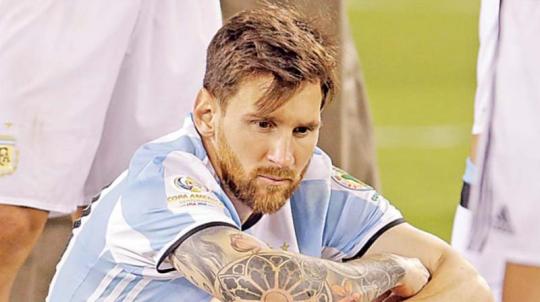
On Saturday night Argentina began their Copa America campaign. The first step towards ending their 26 year wait for a major trophy. For Messi, it is his ninth major international tournament for the Argies, and his 5th Copa America.
It’s hard to recall a time Argentina had gone into a Copa America less fancied (it didn’t take long to see why). There was some fleeting hope among the more optimistic Messi/Argentina supporters that maybe these low expectations would work in the teams favour. After the huge pressure of going into the last two Copas expecting themselves to win, maybe the lack of expectation this time would allow them to play with less pressure and they could end up surprising a few people.
As it turned out, no one was surprised with Argentina on Saturday night. The only slight surprise maybe, is that somehow they’ve managed to get worse from the World Cup last summer.
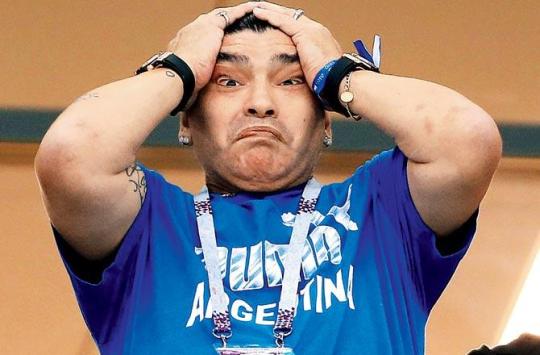
It was a match we’ve seen Argentina involved in time and time again over the last several years. The defence and midfield too poor with the ball to regularly involve the teams star attackers (not just Messi, the team also has Aguero and Di Maria who play for two of the best teams of the world, but you would be forgiven for forgetting as they’re rarely spotted for the Albiceleste), then the forwards when they do receive the ball usually only have one player ahead or level with them with no sign of the Argentine full backs being anywhere near the opposition final 3rd (atleast they make up for it with their defending right...Right!?..)
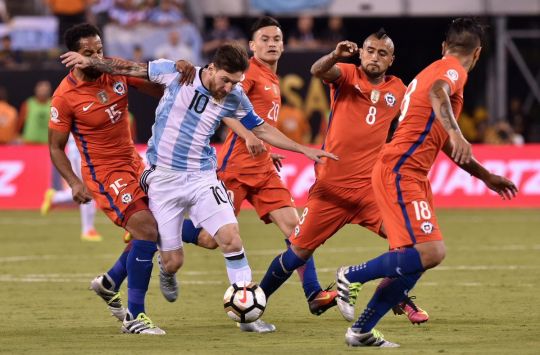
Regarding Lionel Messi, apart from big players who have represented proper minnow nations (George Weah with Liberia for example) it is hard to imagine any player having to deal with more of a stark contrast between their current club side and international side.
But this is not a minnow nation, this is Argentina, one of the most formidable powerhouses in International Football. 14 time champions of South America and since they made the final of the inaugural World Cup in 1930, they’ve been back in the showpiece final 4 more times twice winning the greatest prize of them all.
And yet for the last few years the difference between Argentina and FC Barcelona has been the difference between night and day. That’s not to say it’s been all plain sailing at Barca, just one Champions League semi final appearance since they lifted the trophy in 2015 is underachieving by their standards, and the Roma and Liverpool defeats were unforgivable.
Barca’s hysterical fanbase have been relentless in their insistence that their club is in a real crisis and whilst undoubtedly they are not without issues, in the real world they’ve won a major trophy in 10 out of the last 11 seasons and they’ve claimed the domestic crown (in the opinion of many including me the strongest league in the world) 5 out of the last 7 seasons.
In 10 games Barca will win 8 of them, Messi will score 9 and assist another 4. Some crisis. It seems as though Messi sees more of the ball and is involved in more openings in the first 10 minutes of a Barcelona game at the Nou Camp than in 90 minutes of an Argentina game.
Watching Messi in an Argentina match has a strange effect. Simultaneously the 90 minutes drags along, time crawls by whilst also feeling nowhere near long enough for Messi to impact the game. It feels like only by extending Argentina matches to 4 hours long could we hope to see Messi do half of what he does in a game for Barcelona, in an Argentina shirt.
With just the standard 90 minutes, Messi is usually limited to one good piece of play per Argentina game (be it one good dribble, pass, shot etc.) and one half chance (usually a free kick from a long way out).
Compared to the dramatic transformation of the European game, South American football feels like a throwback to the game of old, it doesn’t appear to have changed that much since the days of Diego Maradona. The pitches aren’t perfect, the games are very rough, physical, often even ugly. To highlight the difference in style and approach between Football’s two most successful continents, take this statistic: in 51 games at Euro 2016, there were 3 red cards. After 5 matches at this years Copa America, two red cards had already been shown.
Most South American teams seem to take a very conservative, defence first approach. The number of players teams put between the ball and their goal only serves to highlight further just how isolating it is playing as an attacking player in this Argentina team. They’re regularly attacking with just 3 or 4 bodies with 7 opposition players back defending their goal. Of course the only South American team bar the minnows who don’t have a solid defence in place is...Argentina. Nicolas Otamendi? How did this guy actually convince people he can defend? All over the show.
Though the problem has undoubtedly got worse in recent years, in this ‘Messi Era’ Argentina have often had issues scoring against South American opposition in competitive football. Messi’s combined Copa America and World Cup Qualifier record is 29 goals in 67 games which is by no means a disgrace, but this is a player who at his scoring peak scored 91 goals in a calendar year, who has scored over 40 goals a season for 10(!) consecutive seasons.
Sergio Aguero has 16 Copa America + WCQ goals and Angel Di Maria just 9. In comparison, 22 of Chile International Eduardo Vargas’ 38 international goals have been scored at either the Copa America or in a WCQ.
These problems in finding the net will likely continue for the Argies against Paraguay and if not, the respite will only be a short one, resuming as soon as they face above mediocre opposition in the next stage. That is assuming they get that far, as failing to get the right results against Paraguay and Qatar would be their first group stage exit at the tournament since 1983 and would surely be one of the lowest moments in the history of Argentinian football.
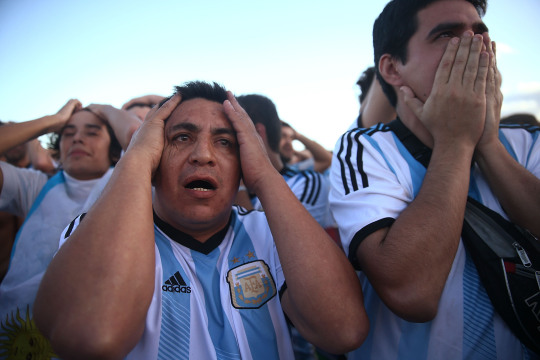
So what can Argentina do about it? well there’s lot they could do about it, lots they could try, but what *will* they do about it? what are they willing to do about it? very little would be my guess.
All hope of change from the fairly disastrous 2018 World Cup had been pinned on the introduction of Lo Celso into the side and how he would be able to link the midfield to the attack and establish a good partnership with Leo Messi. If Saturday night is anything to go by, this one player will not be enough to remotely come close to lifting Argentina’s fortunes.
So it appears Argentina will insist on plodding on with the same tried and failed formula, perhaps doing enough to scrape past Paraguay and Qatar before succumbing against the next above mediocre team they face.
It is maddening how little Argentina seem to be willing to change, and whenever they do make a change it always seems like such a random throwaway selection of personnel, done without any real conviction or hope it will bring about improvement.
For arguments sake here’s how I would look to address The Argentina Problem. First I would move Messi into Midfield. It’s maybe a bit bold to move a player into a position he’s never played before in the middle of a tournament and I can’t understand why its never been experimented with before in friendlies.
Desperate times call for desperate measures. Messi is the best footballer Argentina have, the best footballer anyone has, there is zero benefit to having him play in a forward position at the moment where he is so isolated and seeing the ball so rarely. He is the best passer in the world, he will be able to keep the ball better than any of their other midfield options and can hit passes that few can see, but as well he is also a calm player with a cool head who can steady Argentina from the middle and allow them to keep the ball for a while, which at the moment they are completely unable to do.
This also gives Messi the opportunity to dribble from deep and have options infront of him, he will attract many opposition players when he has the ball which should free up more space for the attackers. It’s long been thought that Messi would flourish in centre midfield when his pace left him and though we’re not at that stage yet, with Messi’s passing range and football intelligence combined with his current ineffectiveness in the side I believe the time is now here to try Messi in centre midfield for these final 2 group games.
Ahead of Messi, I would make Dybala a starter in the side. At the moment he doesn’t ever even feature off the bench. Imagine that, a team struggling as much as this one for goals and for quality completely ignores a man who can give them both in abundance if his Juventus career is anything to go by. He’s 25 years old, not a kid and only has 1 goal for his national side due to opportunities being so stark.
Unless they want another Carlos Tevez on their hands (a world class player whose international career was wasted, scoring just 13 goals over 11 years due to being in and out of the side) Argentina must trust Dybala sooner rather than later and give him the opportunity to prove himself. It was ridiculous that at last years World Cup he was behind Higuaín in the pecking order and its ridiculous that he still now isn't getting a look-in.
Adding another top class attacker into this side would also give defences more to think about and give the current attackers so much needed support. There needs to be much more fluidity and movement in the Argentine attack, Di Maria is allowing games to pass him by whilst he stands out wide not doing anything. Dybala and Di Maria could switch positions during games, drifting all over.
Argentina’s defence are appalling so the best way to combat that in the short term could be to just go top heavy, try to outscore teams and hope that by stacking their attack with the best players they have, teams are more wary and respectful of them. Because at the moment they are causing zero fear or worry for the opposition.
Looking past this tournament, I would also ensure Mauro Icardi is included in every squad from now on, playing as much as possible. I get that he’s a dick and has a bad attitude which may prevent him from hitting the heights he could hit in football, but he’s a brilliant goalscorer. He only needs one chance, one touch. He scored 55 goals in 77 games in 2 seasons for Inter before souring his relationship with the fans. He has been awarded just 8 international caps. 8. He’s 26 years old and Argentina look set to waste having another top striker. And for what? what are they possibly gaining from completely freezing him out.
Looking to the 2022 World Cup, there is only one man who can make Argentina from also rans to serious contenders. Diego Cholo Simeone.
Simeone took control of Atletico in December 2011 days after the team had lost 3-0 at home to a 3rd division team in the cup. They were in 10th place. By May 2014 Atletico had won La Liga in doing so breaking the longest duopoly in Spanish Football since the last time they won it in 1996 when Cholo was a player for them.
The same season they were literal seconds away from winning their first ever European Cup, this was all achieved with a starting 11 costing 35M pounds. In 8 full seasons at the club Simeone has won La Liga at the Nou Camp against Barca, The Copa Del Rey at the Bernabeu against Real, the Spanish Super Cup, 2 Europa Leagues and 2 Uefa Super Cups. He has made 2 Champions League Finals, and finished in the top 3 for 7 straight years. He has transitioned the club into a new era with a new modern stadium and he has done all of this whilst regularly losing big players and having to rebuild. Prior to taking the Atleti job he was also at the helm of Estudiantes de la Plata when they won their first Argentine league title for 23 years.
Basically, if anyone is going to fix Argentina, it’s going to be him. It has to be him. One day it inevitably will be. The proud Argentine who made 106 appearances for his country will undoubtedly one day fall to the temptation of managing his beloved nation at the FIFA World Cup.
And the way I see it, if you’re going to do it what better time to do it than at the 2022 World Cup where you’ll have a 29 year old Dybala, 30 year old Icardi and the greatest player of all time playing in his last ever World Cup.
Messi has scored 67 goals in 131 caps for Argentina, better than 1 in 2 which is a solid return if not as mind-blowing as his 603 in 687 games for Barcelona (though given the context of the Argentina team he’s scored 67 in, who knows maybe it is) and though in recent times he’s seemingly grown tired and less able of carrying Argentina on his back, no one should deny that for many years that’s exactly what he did.
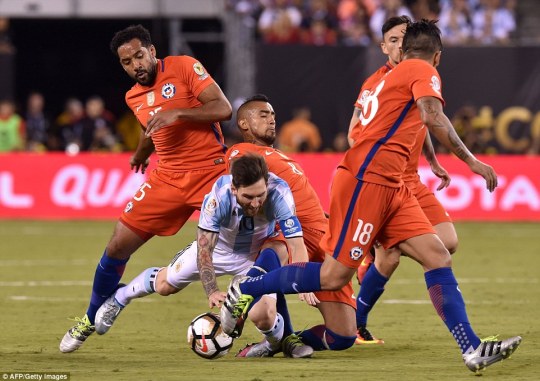
Argentina reached extra time of the World Cup Final and 2 Copa America finals in 3 years (Where they was only Higuaín not being shit away from glory. How they must long for them days now). Without Messi that wouldn’t have been possible. He dragged those average teams to touching distance of silverware, and that’s why I hope he is given the chance to play his final World Cup with a truly world class manager in charge.
Just give Messi a chance of winning the biggest prize of all, just a chance. Get Simeone in to coach the defence, get everyone running through brick walls for the shirt and for him and get Messi playing behind Dybala and Icardi, knowing that it’s a collective team effort now and all the responsibility is no longer his.
It’s what the greatest player of all time deserves and for that reason I hope he picks up the phone soon and calls Simeone. And tells him personally how much he wants him to take the job for the World Cup. It’s hard to imagine that wouldn’t have an effect on Cholo, such a big legend of the game asking personally for you. Then after he’s had time to think on it, I would leak the call to the world, so huge pressure builds on him to accept and he can see the huge fanfare from Argentina fans for him.
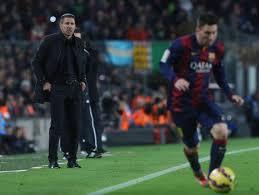
Whether Messi the dictator is real or fake, he needs to come out now and take action to save his international career.
#messi#leomessi#lionelmessi#argentina#copaamerica#copaamerica2019#copaargentina#copa amerika 2019#simeone#diegosimeone#cholo#icardi#mauro icardi#dybala#paulo dybala#aguero#kunaguero#dimaria#angeldimaria#football#futbol#soccer
3 notes
·
View notes
Text
A love letter to Ajax, Europe's most exciting team
In Engeland they are deeply impressed by the accomplishments of this young, talented Ajax team.
It resulted in a love letter to 'butterfly' Ajax - in The Telegraph, one of Britain's biggest newspapers - going viral.
Ajax is winning hearts.
"They are doing the impossible"
This is a love letter, a tribute to a team that has made me fall in love with football again and a club who have reminded us all that something pure remains unsullied in the beautiful game.
You may not fully appreciate how special Ajax are, not yet. You will probably be unaware of the journey this famous Dutch club has been on, the thinking behind the process that has brought them to the brink of a Champions League final for the first time in 23 years.
Ajax are amazing and I do not use those words lightly. They play with freedom of expression, they play like a team born in Amsterdam, that most artistic and rebellious of cities where you are allowed to indulge; where hedonism is a way of life and your creativity is nurtured and encouraged. If ever a football team symbolised its home city, it is Ajax.
It is an incredible team, not just a joy to behold, but remarkable because this is simply not supposed to happen in the modern game.
What makes them special, so unique, is that this Ajax team will not build a dynasty, they will not dominate. Ajax are like a butterfly, beautiful, bewitching, but already dying. Almost from the moment they spread their wings in Europe this season, long before they knocked out Real Madrid and Juventus in the knockout stage, they knew they were reaching the end of their time together.
They are a team to be cherished because these are already their final days. In the summer, this Ajax team will be broken up, their best players scattered around Europe’s biggest clubs, spread all over the continent depending on who offers the most money to entice them away.
And consider this too – Ajax have produced more players, developed in their academy for three or more years, currently playing in Europe's top divisions than any other club in the world. This is not new, what is different, is that for once they have been allowed to grow and develop together. For the time being at least.
Speak to anyone connected with Ajax they will tell you it is inevitable the team will be torn apart. There is sadness, but it is fleeting because this team has made people proud.
It is a team designed to play to win, to never take a backward step, a team which intends to dominate, not merely to survive, even though that is what the club has been forced to do.
Watch Ajax play and you will see and you will, I’m sure, fall in love. The youngest side to reach the knockout stage of this year’s Champions League has also been by far the best to watch.
The style of football has been likened to playing in the middle of whirlwind, such is the speed and power of those in Ajax shirts, they come at you with such unrelenting ferocity.
They pass and move with a speed not seen for years. Players with good technical ability, able to play in a variety of positions. They are the embodiment of the Total Football values that Dutch football has always prided itself on. They deserve their place alongside all the great Ajax sides of yesteryear, but they have done it in an era when it was supposed to be impossible for them to compete.
Ajax have built this side from a mixture of homegrown talent and bargain buys. The most expensive players, Dusan Tadic, signed from Southampton for around £10m last summer and winger David Neres, signed for around the same amount from Sao Paulo two years ago, are a Premier League reject and a player who spent his first season in the development squad.
It is a team forged from the arrogance and swagger of youth, whether it is midfielder Frenkie de Jong – who has already signed for Barcelona for £75m and will leave in the summer – or centre back and captain, the 19-year-old Matthijs de Ligt, a target for every major club in Europe who scored the winning goal against Juventus, everywhere you look there is an Ajax youngster blossoming.
Ajax built this team from the bottom up. They did not poach the best players, they did not buy the established stars everyone wanted. They built a team with their own vision and hard work, mainly in their own academy. They constructed an awesome side because they believed in their ability to produce and nurture their own players
Ajax may be a famous old name, but they are paupers these days, a relic from a more egalitarian age when all the big clubs, from all the European leagues, could dream of conquering the continent.
Those days were supposed to be gone. We are now in the era of the Super Clubs, when oil-rich nation own football clubs and multi-billionaires jostle with each other for international prestige. We are, if you look across Europe, at a point where the same big teams win their domestic leagues year after year, in Germany, France, Scotland, Italy and beyond. Even in England, the richest club, Manchester City could win the quadruple.
Ajax had supposedly been left behind, but this is a club where supporters do not chant excitedly about one of their own wearing the red and white shirt, they expect it.
Ajax’s wage bill last season was less than Aston Villa, Cardiff, Middlesbrough and Wolves when they were in the Championship last season. It was also beneath Celtic’s – a club with an equally grand history and reputation. It has gone up a little this season, but it will still be lower than every Premier League team.
This time last year, Ajax feared the time had come for their best players to leave, but the club asked the likes of de Jong, de Ligt, Hakim Ziyech and Donny van de Beek to give them another season. Only striker Justin Kluivert, son of Patrick, did not listen, leaving for Roma where he has struggled for first team football.
The rest stayed put, promising the club that had launched their careers, one more year. One more season to win the Dutch league, to win silverware together and surely all of us most now hope it is the biggest prize of all that is paraded through the streets of Amsterdam in June.
Ajax, champions of Europe, would be an even better fairytale than Leicester City winning the Premier League.
--- I'm speechless. Amen. ---

#ajax amsterdam#afc ajax#ajax#love letters#the telegraph#luke edwards#the netherlands#netherlands#holland#football
1 note
·
View note
Text

Valentine’s Day special: Nigerian footballers and their partners!
In light of Valentine’s Day, we celebrate the day in a very special way by taking a look at Nigerian footballers and their partners.
More often than we know, our favourite sportspeople get their support system from their significant others and today we appreciate them all in the name of love.
Ngozi Okobi-Okeoghene
Super Falcons midfielder Ngozi Okobi-Okeoghene is one of Nigeria’s most successful women footballers of the current era, winning four AWCON titles as well as being named in the IFFHS CAF Women’s Team of The Decade (2011-2020).
The 28-year-old, who currently features for Eskilstuna United in Sweden, married real estate mogul Ahmed Okeoghene on December 9, 2017.
Last December, she celebrated their four-year union on social media. “Happy anniversary to us. It has been an amazing journey all these years, distance and all, you’ve been so supportive. I love you baby, thanks for being my strength,” she posted on her Instagram page with pictures of the couple.
Daniel Akpeyi
Kaizer Chiefs goalkeeper Akpeyi married his long time girl friend Emmanuella Ebert-Kalu in a traditional ceremony in December 2016, before their white nuptial in June 2017. In July 2018, they welcomed their first child, Prince Jason Akpeyi, who was born in Port Elizabeth.
Ogenyi Onazi
Al-Adalah midfielder, Ogenyi Onazi, survived a road accident on his way from Benin City in June 2016, a day after his traditional wedding ceremony with long-time Sandra Ogunsuyi.
The 2013 AFCON winner was returning to Lagos to prepare for his white wedding, when one of the tyres of his car reportedly burst after it ran into a pothole.
Onazi escaped unhurt and went ahead with the white wedding in Lagos, on June 18.
Taiwo Awoniyi
Union Berlin striker Awoniyi married his partner Taiwo Jesudun in an engagement and traditional wedding in Kabba, Kogi State on June 15, 2018, followed by a white wedding a day later in Ilorin, the Kwara State capital.
Troost-Ekong
Super Eagles defender Troost-Ekong on Sunday, October 17, 2021 tied the knot with his long-time girlfriend at a private ceremony in London.
The 28-year-old defender had some of his Eagles teammates Kelechi Iheanacho, Wilfred Ndidi and Leon Balogun, as well as his Watford teammate Moussa Sissoko present at the ceremony.
The couple welcomed a son earlier in 2018.
Moses Simon
Eagles star Simon and his wife, Ibukun Adenuga, met when they were in secondary school. Reports say she stood by Simon, when the Nantes winger was passing through trying times.
Simon later traveled to Europe, where his career flourished and never forgot Ibukun’s sacrifices.
The couple married in a traditional wedding ceremony on December 29, 2015 in Ibadan.
Ahmed Musa
Super Eagles skipper Ahmed Musa reportedly tied the knot for the third time, when he married a Shuwa woman identified as Mariam in a secret ceremony last July.
This came four years after his marriage to his first wife Jamila ended and he married Juliet Ejue from Ogoja, Cross River State.
His marriage to Mariam officially makes her his second wife.
Musa has four children: two from Jamila and two from Juliet.
Peter Olayinka
Slavia Prague striker Olayinka married Nigerian actress, model, beauty queen, actress and film producer Yetunde Barnabas June 2021, three months after the lovebirds held their traditional wedding in a low-key event, after about two years of dating.
Barnabas won The Most Beautiful Girl in Abuja pageant in 2017, and was crowned Miss Tourism Nigeria in 2019.She is best known for role as Miss Pepeiye on Nigeria’s long running sitcom, Papa Ajasco and Company, as well as several leading roles in the Yoruba movie industry.
Wilfred Ndidi
Wilfred and wife Dinma Fortune have known each other since childhood, and started dating during their late teenage period. What followed was years of togetherness, marked by unconditional love and mutual support through thick and thin.
In 2019, the couple tied the knot in Abuja with two wedding ceremonies to commemorate the holy matrimony. Ndidi and Dinma have been happily married ever after!
Henry Onyekuru
Olympiakos forward Onyekuru tied the knot with his wife Esty in a traditional wedding ceremony in Benin City in 2019 and a year later, in celebration of their anniversary, the footballer bought her a 2019/2020 Range Rover Sport worth about N60m.
The couple, who dated for several years before they got married, are blessed with two kids: a boy and girl.
Eagles’ second choice keeper Uzoho dumped bachelorhood December 26, 2018, after he married his long-time girlfriend Soomie in a traditional wedding at the Anglican Cathedral, Egbu in Owerri, Imo State.
The wedding rounded off a remarkable year for the shot stopper, who made his debut for the Eagles and also featured at the Russia 2018 World Cup as his country’s first choice.
Uzoho and his wife welcomed a son early last year.
1 note
·
View note
Text
Liverpool Alexander Arnold's fate, change the full-back paradigm 먹튀검증

먹튀검증먹튀사이트먹튀검증사이트먹튀 검증 먹튀 사이트 먹튀 검증 사이트
Trent Alexander Arnold, 23, is not avoiding his fate.
Liverpool FC played against Atlético Madrid in Group B Group B match of the 2021/22 season held at Anfield in Liverpool, Merseyside, Northwest England, England on the 4th (Korea time) The match was won 2-0. Liverpool have won four in a row and Atleti have lost two in a row.
Liverpool won La Liga champions Atleti on that day. The win put Liverpool on an unbeaten run of 25 matches in all competitions (18 wins, 7 draws), the club's undefeated record since they entered the Football League in 1893.
The team's undefeated record is something that every player has to do well. However, there are players who have contributed greatly, and right-back Alexander Arnold is one of them.
Alexander Arnold also flew with assists for both goals scored by the team in this match against Atleti. In the 12th minute of the first half, he helped Diogo Jota score with a perfect cross. In the 20th minute of the first half, he kicked the ball hard and helped Sadio Mane score.
Alexander Arnold had 44 assists since the 2018/19 season with this assist. No other player has assisted more than that in the same period other than Kevin De Bruyne. A full-back is contributing more than any other striker or midfielder. Alexander Arnold is making a paradigm shift by playing as a light fullback that is only recognized as a defender.
In fact, the full-back has been an unpopular position until now. Early in the history of football, offense and defense were completely separate. When the attacker grabbed the ball and went to the opposing camp, the defender went out to respond. Conversely, if the defender blocked the ball and then the fellow striker proceeded to attack, the defender did not participate and held his breath.
However, with the activation of total football in the 1970s, this stereotype was broken. But later football history has been the era of central playmakers. Victory or defeat was decided by the central playmaker's attack assembly ability. Still, the full-back was an assistant at best, and at worst a sidekick.
However, as pressure football deepened and tactics developed, the importance of the side emerged. With injuries to the side wing forwards, the value of full-backs has also increased. Now, full-backs must not just defend, they must attack and help the team at the right time.
Alexander Arnold is changing the paradigm of the full-back in this current trend. He owns the ball, leads the game, and produces a lot of attacking points. Of course, he is in charge of the free-kick, so his attack points are higher, and he is benefiting from Jurgen Klopp's tactic, which focuses on full-backs. However, without Alexander Arnold's own ability, it would have been difficult for him to bring as many attack points as he has drawn so far from his current position.
Alexander Arnold said in an interview with Goal.com UK in 2020, "There is a joke that no one wants to grow up to be like Gary Neville (the legendary full-back of Manchester United). I want to change that perception."
No player has ever won the Ballon d'Or trophy, which is given to the best player in the world every year, in a full-back position. There is a player who brought it to the goalkeeper position (Lev Yashin), but there is no full-back. Left-back Roberto Carlos finished second and left-back Paolo Maldini finished third. The achievements that even the greatest full-backs have not achieved give us a glimpse of just how far the full-back is out of the spotlight.
Alexander Arnold is fighting for his club Liverpool and England, while also fighting to change the paradigm of full-backs. A full-back is not just a defensive position on the flanks. You can show your presence by blocking the opponent's attack in a defensive situation, and take the initiative in attacking in an offensive situation. Full-backs can also play a leading role. This is the proposition that Alexander Arnold is showing.
0 notes
Text
The Maradona of the 21st Century is not Lionel Messi
The most common and in fact only real comparison ever made between 2 great footballers of different eras is that of Diego Maradona and Lionel Messi. Both are diminutive left-footed Argentine number 10′s, blessed with the best dribbling ability the game has ever seen. With a strength and speed that belies their stature, combined with extraordinary close control, they beat defenders at a rate that noone has matched.
And in the early day’s of Messi, there were eerie similarities. 2005 saw Messi make his international debut against Hungary, the same opponent Maradona debuted against. In 2007 Messi scored against Getafe with a goal identical to Maradona’s ‘goal of the century’ and then a couple of months later he scored with his hand against Espanyol, going unpunished as Diego famously did with the ‘Hand of God’.
But since then, the differences between the two players careers have grew and grew. Messi has so far spent over 20 years at one football club, Maradona represented 6 across 7 different spells. Leo though only 33, has already scored well over twice as many career goals as Maradona, and has appeared in well over 200 more senior matches. Messi has scored over 30 goals for his club in 13 consecutive seasons, Maradona only scored over 20 goals twice in Europe. Messi has so far won 35 major honours in club football, to Diego’s 9. Maradona has lifted the World Cup whereas Messi has never won a senior international trophy and Messi has scored over twice as many goals for Argentina, with over 50 more caps so far.
Simply put, they have had very different careers and lived very different lifestyles. I feel greater similarities are to be found between Maradona and another 21st century footballer, who also wore the number 10 shirt for Barcelona, Ronaldinho.
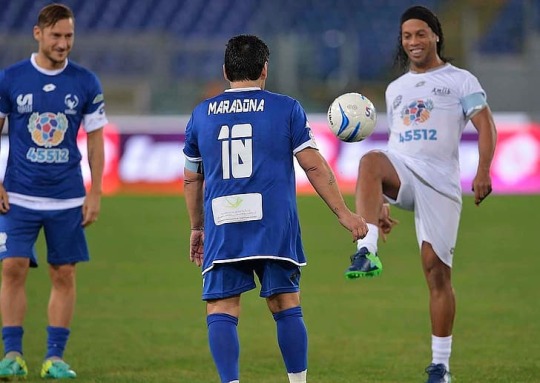
Maradona and Ronaldinho both spent 10 seasons in Europe, played for 3 European Clubs, and spent 2 seasons at their first European club. They played by far the best and most consistent football of their career and reached their highest highs at their 2nd European club. Here both men won 5 major honours, including 2 league titles and a European trophy. Maradona played 52 more games for Napoli and scored 21 more goals than Ronaldinho for Barcelona, which makes it likely that if they’d played an identical amount of games, they’d have an almost identical goal tally.
Both won the World Cup with a 2-0 knockout stage win over Belgium, a 2-1 Quarter-Final win over England, and beat Germany in the final. Both also scored goals in the Quarter-Final which were the best remembered of the tournament and highly embarrassed the England goalkeeper.
Here are some stats which highlight some more similarities in their respective careers:
Club trophies won: Maradona 9, Ronaldinho 12. Number of Clubs: Maradona 6 (in 7 spells), Ronaldinho 8. International caps: Maradona 91, Ronaldinho 97. International goals: Maradona 34, Ronaldinho 33. Competitive Internationals: Maradona 46, Ronaldinho 52. Goals in Competitive internationals: Maradona 17, Ronaldinho 17. Total senior goals: Maradona 345, Ronaldinho 299. freekicks scored: Maradona 62, Ronaldinho 66.
As Players
Maradona was a classic Number 10, a creative playmaker operating from a free role either as an attacking midfielder or a 2nd striker. His game was renowned for his dribbling which due to his low centre of gravity, stocky physique, acceleration, quick feet, close control, agility and his ability to quickly change direction made him extremely difficult to stop. Despite a solid goal return, Maradona’s game was about more than just scoring goals and individual runs, his vision, passing and creativity made him a fantastic teamplayer also.
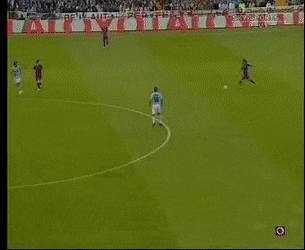
Ronaldinho also could operate as a Number 10, playing in a free central role as an attacking midfielder, though he could also be deployed on either wing to devastating effect. Ronaldinho was an extremely effective playmaker as like Maradona he possessed outstanding vision and creativty with great passing ability. He was also a world class dribbler with underrated pace and acceleration, aswell as athleticism, balance and ball control allowing him to take on opponents. He was one of the most effective ever 1 v 1 at beating players with his tricks, feints, stepovers, nutmegs, aswell as sheer unpredictability making him extremely challenging to handle. Ronaldinho was also known for his technical skills, flair, creativity and touch.
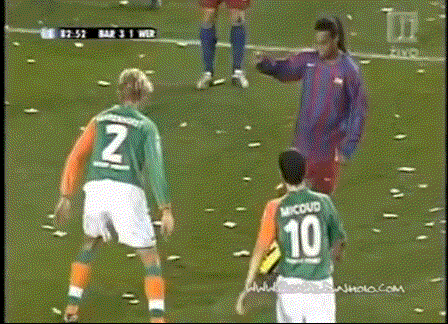
Maradona and Ronaldinho are the most skillful players to ever reach the top of the game. More so than anyone else who has become the number 1 player on the planet, they were freestyle footballers. Maradona was one of Ronaldinho’s idols as a kid, and it’s easy to see why. Only Ronaldinho himself could cast a similar spell over the ball, Diego seemed to be almost at one with it, manipulating it in any way he wanted.
Whether doing keepy-ups with his shoulders, head, heel or slices as naturally as other players do them with their feet, Maradona had an artists understanding with the ball. And not just footballs either, his feet could do whatever he wished with golf balls, rolled up socks, anything he could make resemble a football he juggled with.
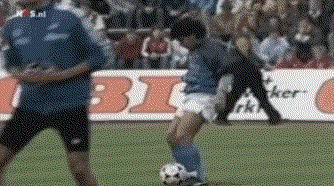
Maradona and Ronaldinho were two players who you didn’t need to see in an-game situation to be entertained by. Just throw them a ball. This was evidenced with the well known video of Maradona warming up before a UEFA Cup Semi-Final against Bayern Munich set to ‘Life is Life’ by Opus. Preparing for the game as if he’s arrived too early for a kickabout and is waiting for his mates to show up, Diego plays with an unbelievable rhythm.
This sense of rhythm and fun didn’t leave Diego once the game had kicked off, with regular rabona’s and roulette’s (which became known as the Maradona turn due to the level he perfected it) elevating the entertainment for everyone in attendance.
This is where I think his game is more similar to Ronaldinho’s than that of Messi’s. Lionel though brilliant to watch is nowhere near as flashy, applying skills only when absolutely necessary. For Ronaldinho however, skills always felt necessary. No look passes, pannas, elasticos (known also by some as ‘the gaucho’ due to Ronaldinho’s mastery of the skill) were all regular features of Ronaldinho’s arsenal.
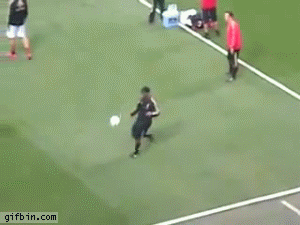
Like Maradona, Ronaldinho was always worth watching before a game had even kicked off. And in training he was capable of getting his teammates to stop dead in their tracks and just stand around watching him perform his skills. An example of Ronaldinho’s ridiculous skill level compared to everyone else, was when he and a number of other top professionals took on the ‘Blindfolded Keepie Uppie challenge’ where as the name suggests, you attempt to do kick ups whilst wearing a blindfold. Benzema managed 5, Lewandowski 7, Xavi 8 and Ronaldinho.. 44.
It’s maybe a strange thing to say about a player who some consider the greatest of all time, and most consider in the top 3 of all time, but Maradona could’ve done even more in football. What he was able to do was limited by injuries courtesy of the many dreadful fouls he endured, bouts of lacking motivation, a lifestyle that led to drug addiction, weight gains & crash diets, and 2 drugs bans that meant he scored just 15 league goals after his 30th Birthday.
And aswell, it shows how good Ronaldinho was that a career that saw him become the only player to win the World Cup, the Champions League, the Copa Libertadores and the Balon d’or (not to mention 2 La Liga’s and 2 FIFA World Player of The Year Awards) is seen by many as one that could and should have been better. A lack of dedication and discipline, combined with his hedonistic lifestyle off the pitch led to Ronaldinho’s physical decline coming alot sooner than it should have. That said I think it’s unfair to boil his whole career down to just his years at Barcelona (where he did for a while have the focus and dedication to become the best player in the world) and dismiss everything else. There was still plenty of very good performances afterwards for AC Milan, Flamengo and Atletico Mineiro, where he thrilled the supporters with his quality.
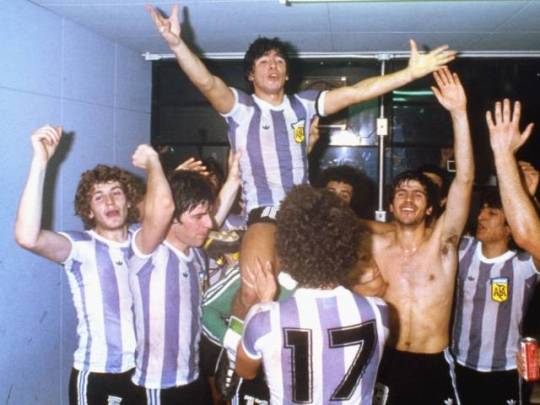
Maradona was in many ways an individualist, for example he had his own fitness coach and his own doctors, never using the doctors employed by his club side or national team, but he was also very much a team player. A technical leader, he was loved by his teammates because he took all the pressure, all the attention on his shoulders, freeing the team up to go out and play without burden. The best example of the deep respect Maradona’s teammates had for him was in a clip from the Napoli dressing room following their historic first Scudetto win in 1987, where the players all sing as though ultras rather than colleagues: “Oh mama, mama, mama, do you know why my heart is racing? I’ve seen Maradona! I’ve seen Maradona! and Mum I fell in love with him!”

In a different way, Ronaldinho was also an excellent team player. When Ronaldinho was at the peak of his powers, a 16-year old Argentine came to his attention. Here he saw a player he knew could be something special. Ronaldinho became a sort of big brother figure to Messi from that point on, helping him as much as possible. For an introverted young kid to have the best player in the World take such a care and interest in him, must have been a tremendous boost. There was no ego from Ronaldinho, no jealousy or attempt to keep the teenager ‘In his place’. When Messi was 17, Ronaldinho introduced him to Kobe Bryant as “someone who will be the best footballer of all time” and in an interview with Four Four Two magazine the current Balon d’Or holder claimed Messi was already better than him.
Beginning
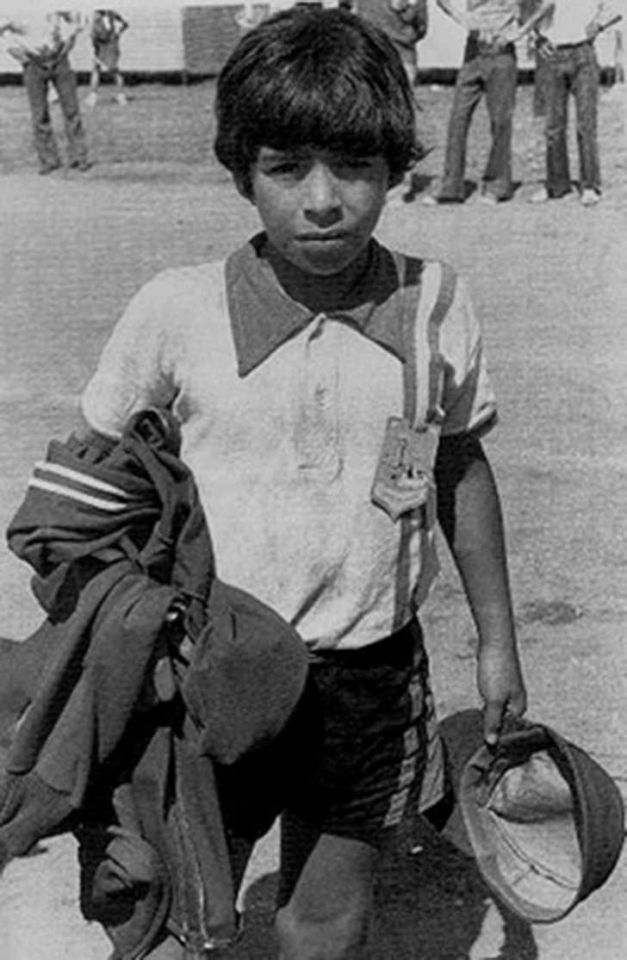
Diego Armando Maradona was born October 30, 1960 in Buenos Aires, Argentina and was raised in the Villa Fiorito shantytown, on the outskirts of the capital city. His love of football came very early, when he was given a ball as his first toy at 3 years old, and slept hugging it all night. Growing up in a shack without water or electricity, when Maradona joined the Argentinos Juniors youth team at just 8 years old he and his parents soon realised that their only way out of this hardship was for Diego to make it as a footballer. He already played with an ability way beyond his years and small, skinny physique quickly beginning to garner attention.
As a ballboy for Argentinos Juniors 1st team games, he would go on to the pitch at half time and entertain the crowds with his skills and tricks, aswell as an extraordinary acceleration when dribbling the ball. On one occasion as the 10-year old Diego exited the field for the Argentinos-Boca Juniors game to re-commence, the fans chanted “Let him stay! Let him stay!”. As Maradona continued to seemingly get better with every match he played in the youth teams, Argentinos Juniors had already pinned all their hopes on him before he’d even joined the first team. They already recognised him as the only player they had who could raise serious funds in the future, and in the meantime would be able to improve the team. He was promoted to the first team aged 15.
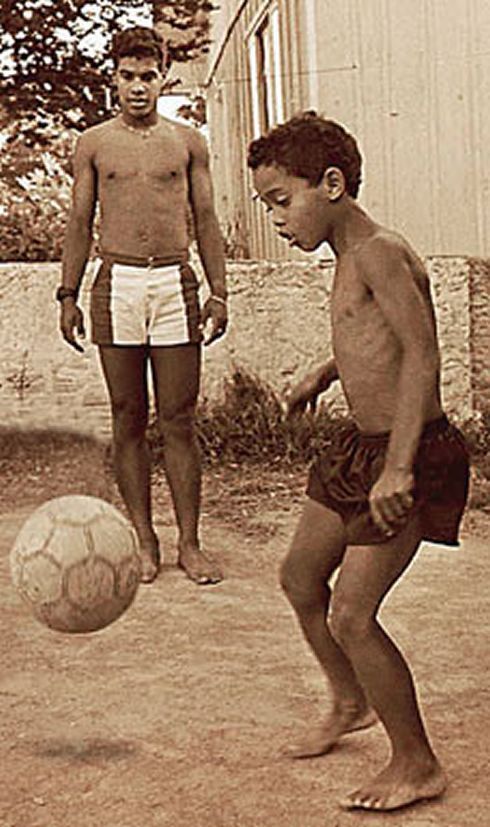
Ronaldo de Assis Moreira was born March 21, 1980 in Porto Alegre, Brazil. He lived in a wooden house in the middle of a favela, until his brother Roberto 8 years his senior, was gifted a home in a more affluent area by Gremio in an effort to get him to stay with the club and reject the interest of Italian club Torino. Tragedy would soon strike for Roberto and his younger brother however, when Roberto returned to the house to celebrate his 18th birthday only to find his father drowned in the family swimming pool.
From a young age Roberto would train his younger brother in one-on-one football sessions, after noticing he too had a real talent for the game. Ronaldinho said of this time “Roberto forced me to juggle the ball as many as 500 times. He stood to watch me do it and would never go until I’d completed it. This took all the fun out of it for me, and at that age it made me very angry. I cried. I didn’t understand. But later I understood what he wanted.”
Roberto’s football career was going well, he had played for Brasil’s under 20′s team and won 3 consecutive state titles with Gremio, the future looked very bright, when more misfortune struck the family. Roberto suffered a serious injury and was let go by Gremio. He moved to FC Sion in Switzerland and with his older brother and father figure since the passing of his Dad now living far away, Ronaldo felt an increased urgency and responsibility to step up and make it as a footballer to help the family financially. He had learned alot from his big brother, who despite being prevented from fulfilling his potential due to injury was still able to etch out a career in football, with a journeyman career making appearances for many sides including Vasco De Gama, Fluimenese and Sporting Lisbon.
Ronaldo played Futsal and Beach Football aswell as 11-a-side football and all this honed his ball control and skills. Often the smallest and youngest player on each of the teams he played for he quickly was assigned the nickname ‘Ronaldinho’ meaning ‘little Ronaldo’ which has always stuck throughout his career despite him growing to over 6 feet tall. He was 13 when he received his first media attention after scoring all 23 goals in a 23-0 win for his side at Futsal (though he did later say “those kids were terrible!”). After starring at the Under 17 World Cup, Ronaldinho followed in his big brothers footsteps by signing for Gremio.
Maradona and Ronaldinho both had their youthful innocence cut short and were forced to see Football as more than fun but as a way out of their hardships at a very young age. As a mere child Maradona had all his families hopes pinned on him for a way out of extreme poverty and Ronaldinho experienced the hardships of life early too with the death of his father and career damaging injury to his brother. But despite all the external pressure and aswell the huge demand they put on themselves to succeed for their families, their pure love for football never wavered.
Starting Out
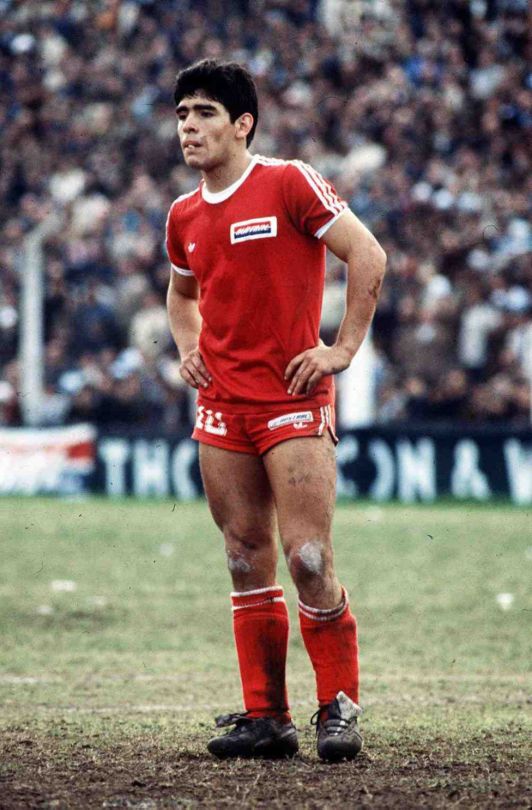
Maradona made his first-team debut for Argentinos 10 days before his 16th Birthday. A few minutes after entering the pitch, he nutmegged an opponent. A few weeks later he made his first start, with then vice-president Settimio Aloisio recalling “What really struck me was the joy there seemed to be in his playing. What seemed unique was that he didn’t seem to have any fear, he was so self-assured, so determined. It was the first time he played a full 90 minutes in the first-team and he did it with all the confidence of a player who had been playing top-class football for at least six years.”
In Diego’s first season for the club in 1976 they finished 2nd bottom of the Metropolitano Championship. In his final season they finished 2nd top. He scored 116 goals in 166 appearences, including a Messi-esque 69 in 71 in his last 2 seasons. Maradona was now too big and too good for the team, and it was time for Argentinos Juniors to get the big payday they hoped years of nurturing this talent would get them. Maradona joined the club he always dreamed of playing for, Boca Juniors for $4M.
Maradona scored 28 goals in 40 games for the club, including a memorable goal in his first Superclasico at La Bombanera stadium against River Plate. The 1981 season brought him his first trophy in senior football, when Boca secured the Metropolitano Championship, the clubs first title for 5 years, by a single point. They had finished 6th in the competition the year before Diego joined.
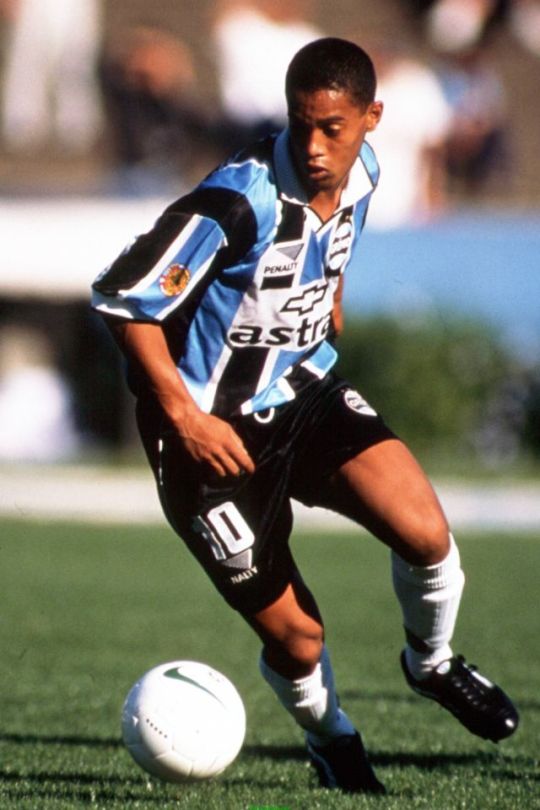
Ronaldinho made his debut for Gremio in 1998, and by his 2nd season the teenager was already showing himself as one of the top Brazilian players in the world. A real breakout moment for him came in the Campeonato Gaucho, the State Championship, usually won by one of Porto Alegre’s biggest sides, either Gremio or rivals Internacional. Gremio came out on top after a sublime performance from Ronaldinho where he tormented and terrorised Brazil’s World Cup winning captain Dunga, on one occasion flicking the ball over his head.
Ronaldinho scored 58 goals in 125 appearances for Gremio, 52 in 87 excluding his debut season and 28 in 37 in his last full season. This was enough to convince Paris St. Germain to spend 5 million Euros to bring him to the French Capital.
Maradona and Ronaldinho both began their professional careers for their local sides, neither club the most glamorous or prestigious of their country, but both rapidly stood out with their performances. Ronaldinho was transferred to Europe in half the time with his first 3 seasons in his native country as opposed to Maradona’s 6, highlighting the change in Football between the late 70s, early 80s and the late 90′s, early 00′s.
In 1978 Argentina had won the World Cup with just one player playing outside of Argentina, and coach Menotti had warned Maradona that Argentina fans would not accept him leaving to play his domestic football in Europe, he did not join a European club until his 7th season. By the time Ronaldinho was on the scene, Europe’s stranglehold over Football meant it was the only place to play for the game’s best talents. Maradona played 206 games in the country of his birth before joining FC Barcelona for a then world record fee of £5 Million pounds.
Europe
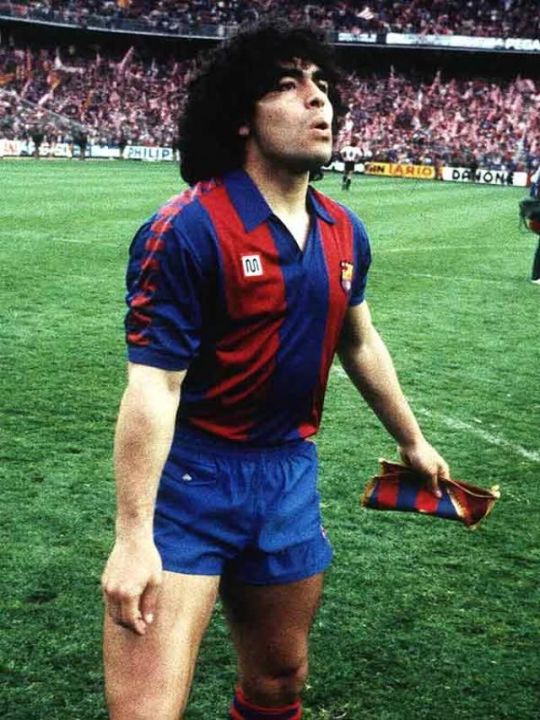
Maradona described his time at FC Barcelona as the ‘unhappiest period of my career’. He found German coach Udo Lattek’s hard early-morning training sessions unsuited to his lifestyle, and had a relationship with Barcelona’s then president Jose Luis Nunez which was hostile from the off. The free-spirit of Diego quickly found the atmosphere of Barcelona oppressive, he felt the cold, calculated stuffed shirts of the Barca boardroom looked down on him as a naive, uneducated outsider. Maradona was used to getting his way in Argentina, and was not a man who could easily accept authority over his life. Whilst Barcelona as an institution were not a club willing to bend for one man, no matter how talented he was with a football.
The early signs on the pitch however, were promising. The team received a standing ovation leaving the pitch away to Red Star Belgrade in the Cup Winners Cup, after a 4-2 victory with 2 goals each for Maradona and fellow foreign star signing Bernd Schuster. But the ego’s and personality clashes of Nunez, Maradona, Lattek and Schuster meant it was never likely to last. After Maradona had spent his first ever Christmas away from Argentina in a state of depression, and not long after he’d returned from a prolonged absence due to viral hepatitis, Lattek was sacked, which did not displease either of Barcelona’s star players, with Schuster referring to the manager as a ‘drunkard’.
Lattek was replaced by Cesar Menotti, Argentina’s World Cup winning manager who had managed Diego in the Under 20s and senior national side. It was hoped by the Barcelona hierarchy that this would be the man to bring the best out of Maradona.
The appointment of Menotti wasn’t the only thing bringing comforts of home to Maradona’s life. He did everything to recreate the life he’d known in Argentina, acquiring the friendship and services of Argentines living in Barcelona to provide him with Calabresi and sandwiches just like he’d known in Buenos Aires. But whenever Maradona and his clan would hit Las Ramblas, which was often, he had to accept he wasn’t in his beloved Argentina anymore. He was in a place with wealthy, educated people who looked down on him and his friends, fuelling Maradona’s inferiority complex which he battled all his life due to his poor upbringing.
It was also during this time in Barcelona that Maradona first began taking cocaine, and though he was able to keep this a secret from Barca, some reports of his activities including regular house parties into the early hours with prostitutes in attendance did make it back to an increasingly exasperated board. The Maradona-Nunez conflict continued to intensify, with Jorge Cyterszpiler, Maradona’s then agent responding to comments from Nunez in the press by phoning him and calling him a “son of a bitch”.
4 Days before the King’s Cup final between Barcelona and hated rivals Real Madrid, Nunez refused to allow Maradona to travel to Munich for a testimonial match, a lack of liberty which infuriated Maradona. The team were able to capture the trophy however, beating Real 2-1 with a 90th minute winner, in a game both Maradona and Schuster ran. It had been a turbulent debut season however to say the least, the team had finished 4th behind Athletic Bilbao, Spanish champions for the first time in 27 years, and the two Madrid clubs. They had also been dumped out of the Cup Winners Cup by Austrian minnows Memphis. Maradona scored 23 goals in 35 appearances but injuries and illness had limited him to just 20 league games and 11 goals.
Maradona’s second year was to be defined by yet another rivalry, this time that of coach Menotti and Athletic Bilbao manager Xavier Clemente. In a war of words due to differing football philosophies similar to that of Brian Clough and Don Revie in England, Menotti made public his disdain for what he considered (not without reason), the thuggish football of Bilbao saying “the day they decide to be a bullfighter rather than a bull on the pitch it will play better football.” Clemente responded saying he would take no lessons from an Argentine who spent more time pursuing women than teaching football skills. The stage was set for a series of violent matches to take place between the sides that season. With Barca leading Bilbao 2-0 at the Nou Camp early in the season, Goikoetxea, subsequently named ‘the Butcher of Bilbao’ delivered one of the most brutal fouls Spanish football had seen on Maradona. Menotti demanded Goikoetxea be banned for life, as it was he was hit with a 10-game ban instead. This came as little consolation for Maradona who had long complained about the harsh treatment he received from defenders in Spain due to little protection from referees. This tackle, feared possibly career threatening at the time, kept him sidelined for 3 months.
A few weeks after his return to fitness, Maradona lined up to face Bilbao again, this time at the San Mames stadium. Maradona led his team heroically through another brutal match, scoring both goals in a 2-1 win for his side in one of the dirtiest matches seen at the stadium. Maradona’s duels with Bilbao didn’t end here though, and they would reach a stunning conclusion in the 1984 King’s Cup final infront of 100,000 spectators and half of Spain’s watching public. After a 1-0 defeat featuring the usual Bilbao treatment whenever Diego went near the ball, and racist insults towards him regarding his Father’s native American Indian ancestry, he was given a ‘fuck off’ sign by unused Bilbao substitute Sola, and Maradona subsequently knocked him to the floor before kneeing him out cold. Chaos ensued with a mass brawl involving all the players, with flying kicks everywhere you looked. Maradona was at one stage knocked to the floor with a Bilbao player standing over him, when out of nowhere a teammate jumped in with a huge kick to the players back sending him flying. Maradona left the pitch with his Barcelona shirt torn, he would never wear one again. The brawl resulted in 60 people being injured as fans rained missiles down on players, coaches and photographers.
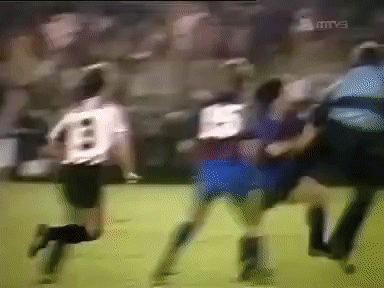
The board had seen enough, Maradona’s time with Barcelona was up. He scored 38 goals in 58 games for the club. There had been some highs, beating Real Madrid in the Kings Cup and the short lived Spanish League Cup final, where after scoring one of the all-time great El Clasico goals in the 1st leg at the Bernabeu he was given a standing ovation by the Real supporters. But there had also been just as many lows, and overall Maradona had failed to do what he was signed to do, establish Barcelona as Spain’s number 1 team again. A move was required for all parties, as Maradona’s spending and bad business moves made on his behalf had left him with so much debt only a huge signing-on fee would take care of it. This came in the shape of another world record fee, £6.9M to Italian Club Napoli. Both Maradona and Barcelona would benefit from the move, as under Terry Venables Barcelona won their first league title for 11 years by 10 points (in the days of 2 points for a win) and reached their first European Cup final the following year, losing on penalties to Steaua Bucharest. Ironically it took the departure of Maradona to get Barcelona to do what his arrival was supposed to do for them.
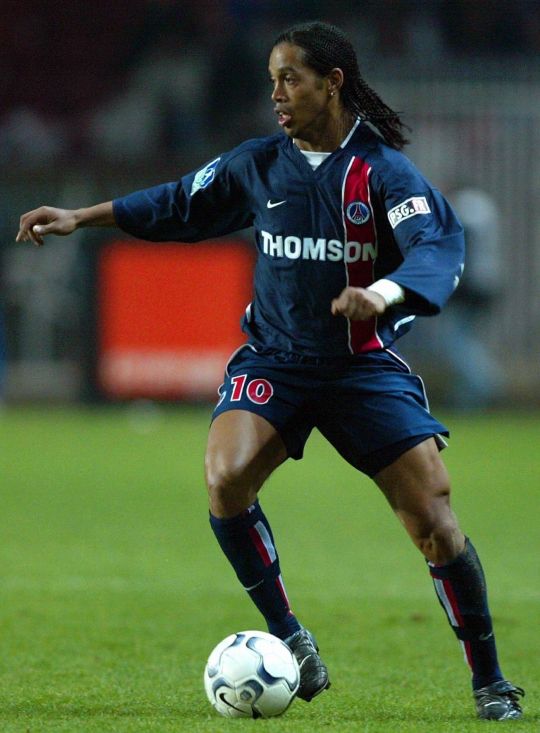
Ronaldinho chose long-time sleeping giants Paris Saint Germain when better teams were perhaps interested in signing him for one reason only, to ensure he would be a regular starter in order to convince Brazil manager Scolari that he should be the 3rd name in the attack alongside Ronaldo and Rivaldo. For the first few months, his plan seemed to have backfired spectacularly. After getting the all clear to play from Fifa, after a messy legal procedure between PSG and Gremio, he still struggled to get the all clear to start from manager Luis Fernandez, so was forced to watch players such as Gabriel Heinze, Mauricio Pochettino, Jay Jay Okocha and Nicolas Anelka from the bench for much of the time before being introduced into games in the second half more often than not.
This slow start was doubly concerning due to the form back home of Ricardo Kaka who was banging them in for Sao Paulo. At the half way stage, it looked likely it would be Kaka starting for Brazil and if Ronaldinho didn’t find some form, he would be a doubt to even make the plane.
Ronaldinho began to make an impact before the winter break, and after it his fortunes had an even greater upturn. Okocha went to the African Cup of Nations and Anelka was loaned to Liverpool. Ronaldinho was going to become the main man in the PSG attack, if he could seize his chance. He scored in the first 4 games back, including a brace against Guingamp.
By mid-march he was making it look easy, looking as though nothing was more simple to him than dribbling through a defence and beating the onrushing goalkeeper as he did not once but twice against Troyes.
Despite only starting half the league games, Ronaldinho finished the season confirming himself as PSG’s best and most important player, aswell as their top scorer with 13 goals and earning a place in the Ligue 1 team of the season.
Ronaldinho returned for his second season at PSG as a World Cup winner, however his upward trajectory at Paris which had begun in the second half of his first season would not continue without dips. Manager Luis Fernandez criticised Ronaldinho’s enthusiasm for Parisian nightlife, claiming he focused on it more than Football. Another source of frustration for him was a typical one for managers dealing with Brazilian players, the long trips back home Ronaldinho took during the season, which Fernandez bemoaned never ended when scheduled. Ronaldinho fired back at his manager’s criticism that “it seems to bother him that I am happy.”
The league campaign was a very disappointing one to say the least for PSG, finishing 7 places lower than in Ronaldinho’s first season, coming in 11th place. On a personal level, there was some satisfaction for Ronaldinho in winning the award for Ligue 1 goal of the season, with a brilliant solo goal against Guingamp. Accelerating suddenly before the first man has even had a chance to get close to him, he plays a one-two around another, then dinks the ball over a slide tackling defender, waits for the ball to drop then dribbles into the box, throws a stepover to make space for the shot then lifts the ball quite wonderfully over a helpless goalkeeper. Pure Ronaldinho magic.
Paris also reached the Coupe de France final after 2 goals from Ronaldinho in the semi-final got them there, however they were beaten by Auxerre in the final with a last minute winner. With a season outside of Europe on the horizon, it was time for Ronaldinho to move on to the next phase in his career. He scored 25 goals in 77 games for the Parisians.
Maradona & Ronaldinho moved to Europe aged 22 and 21 respectively, and both spent 2 seasons with their first European club. Both displayed the talent that made them at times unstoppable, but the flashes of genius were accompanied with a lack of consistency needed to go beyond the promise and potential they were showing to become as great as they undoubtedly could be. In this time, both players also discovered a love of a certain party lifestyle which would remain throughout their respective careers.
Peak
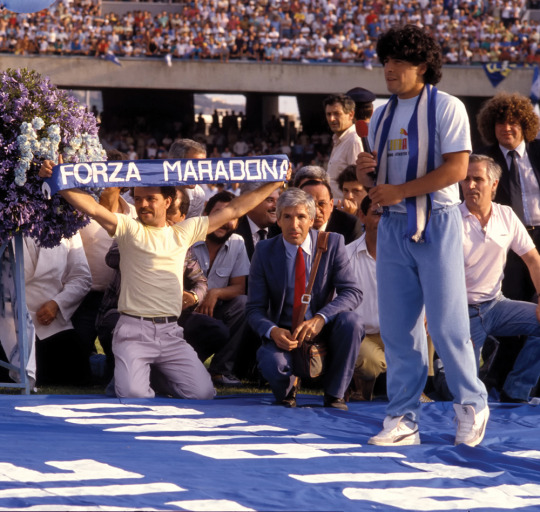
75,000 Napoli supporters packed into the Stadio San Paulo to see the official presentation of Diego Armando Maradona as a Napoli player. For all present that day, the Saviour had arrived. As one local newspaper put it “despite the lack of a mayor, houses, schools, buses, employment and sanitation, none of this matters because we have Maradona."
Maradona found himself feeling instantly more at home than he had ever felt at Barcelona. The poor background he came from aswell as having a Mother of Italian descent gave Maradona an immediate affinity with the city of Naples, in the poorer, economically disadvantaged South of Italy. He could also relate to the feeling of being looked down upon that Neapolitans felt from those in the more affluent and politically prioritised North.
During Maradona’s time in Italy, the North v South hatred was at its peak. The Maradona signing itself had political motivations. Upon hearing of Juventus’ interest in signing the Argentine, Napoli were determined to get one over on the more illustrious then-champions, who already boasted that summer’s standout player at Euro 84, Michel Platini. After his experience with Schuster, Maradona was reluctant to again share the limelight so was instead happy to join the side in the Southern region, a region that had never produced a Serie A winner. Napoli, a club formed in 1926 had to that point won just 2 major honours, both Coppa Italia’s.
Though the team he was joining had a modest history to date, the league he would playing in was by far the best and most competitive in the world. Though a defensive league with emphasis put on the ‘Cattenacio’ style of play, featuring tight man-to-man marking and a sweeper, Maradona could atleast rely on better protection from referees than he’d received in Spain.
Unlike in Barcelona, where the snobbery in high society left Maradona on the outside, Maradona found in Naples he was embraced wherever he found himself in Italy’s most densely populated metropolis, including alongside the Camorra, the Neapolitan Mafia, who had extraordinary influence in all matters in the city at this time. Carmine Guiliano, of the powerful Guiliano clan was only too eager to place himself alongside Naples’ new messiah. And Maradona for his part seemed to find himself more comfortable in this company, than he’d ever felt with the distant and alien Barcelona hierarchy.
Hellas Verona were champions for the only time in their history in Maradona’s debut season, with Napoli having to settle for 8th place. This improved to 3rd in the following year, though off the pitch Maradona had his first serious problems with long-time girlfriend Claudia.
Maradona’s 3rd season saw him hit the peak of his considerable powers. Fresh off the back of inspiring Argentina to the 1986 World Cup trophy, his encore was delivering Napoli to the promised land as they took their first ever Scudetto, with a league double over Juventus proving decisive. Winning Serie A sparked a week-long party in Naples, so often the butt of the North’s jokes, it was they who were laughing now. Maradona had put Napoli and the entire city of Naples on top of Italy, and in doing so his standing amongst the people could not have been any higher. In the eyes of the adoring Neapolitans he was more than a footballer, more than a man even.
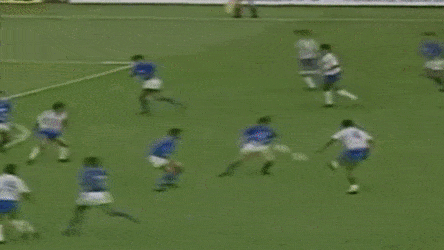
Maradona and Napoli were unable to retain their crown, ending the season with 4 losses and 1 draw as they lost out to Milan by 3 points. This was the season problems between Maradona and Napoli president Corrado Ferlaino began to materialise. Napoli who had so far accepted his unwillingness to be controlled had grown frustrated at his missing of training sessions and the following season with Maradona injured or missing from training all the more regularly, Napoli ended further away from the Scudetto. Though still 2nd they finished 11 points behind Internazionale and were beaten in the Coppa Italia final. Things reached their lowest moment to date that season when Maradona took himself off just 17 minutes into a game due to injury, this was greeted with jeers and whistles from the supporters who had once revered him as their King. This infuriated Maradona, but there was redemption in the Uefa Cup which Napoli won beating Stuggart in the two-legged final, after dispatching Juventus and Bayern Munich to reach it.
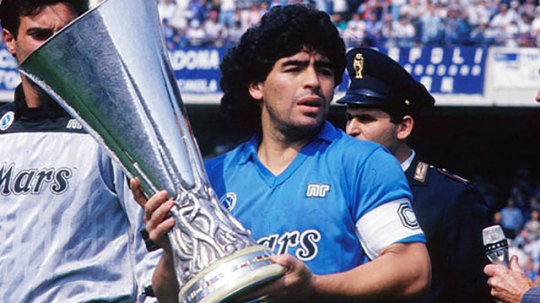
But Maradona was beginning to feel trapped again. This feeling was exacerbated by him finding out about Olympique Marseille’s interest in signing him only after Ferlaino had rejected the offer. An increasingly frustrated Maradona began lashing out and making enemies in the media, who did not accept his outspoken complaints without backlash.
After a slow start to the 89-90 season, with the World Cup that summer looming ever closer, Maradona’s motivation soared again and he had his most prolific season for Napoli, scoring 16 in 28 league games as they finished 2 points above Milan to take the Scudetto for the 2nd time in 4 years. Maradona had responded to the adversity by climbing back to the top, it was the final time in his career he would sit there.
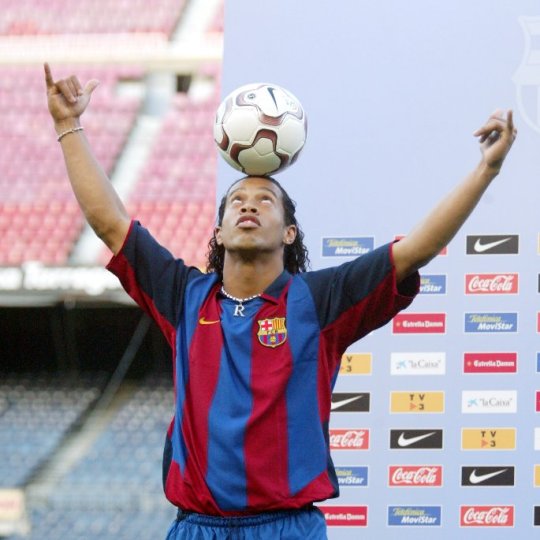
“Ronaldinho was responsible for the change in Barca. It was a bad time and the change that came about with his arrival was amazing. In the first year, he didn’t win anything but people fell in love with him. Then the trophies started coming and he made all those people happy. Barca should always be grateful for everything he did.” - Lionel Messi.
Though it would maybe be a stretch to compare the FC Barcelona that Ronaldinho joined in 2003 to Napoli, the fact is the club was not in a good place. Trophyless for 4 seasons, having gone through 6 different managerial reigns in that time, the club hadn’t finished above 4th for 3 years and the season prior to the Brazilian's arrival, Barca had their worst league position for 15 years, coming in 6th, as 3 different managers tried and failed to turn their fortunes around. Making matters even worse during this trophy drought, their bitter rivals Real Madrid had taken their star captain Luis Figo and just to rub it in had won 5 major honours including 2 Champions League titles. It was them enjoying the stability of one coach, with all this silverware coming under Vincente Del Bosque.
2003-04 brought Barcelona a new President Juan Laporta, a new manager in Frank Rijkaard and now it needed a new star player. Laporta earmarked 3 players of which he felt 1 was needed to bring Barcelona back to the top: Thierry Henry of Arsenal, David Beckham of Manchester United or Ronaldinho of PSG. Henry had unfinished business left at Arsenal, Florentino Perez made Beckham his latest and most glamorous Galactico to date, leaving Ronaldinho. And though Real Madrid passed up on him, with the words of a Real Madrid executive “He is so ugly that he’d sink you as a brand” reflecting Real Madrid’s new Business first, Football second approach which had led to the bizarre sacking of Vicente Del Bosque, the path to Ronaldinho was not completely clear for Barcelona. Premier League Champions Manchester United were very close to securing the 23-year old but in the end they couldn’t get it over the line and instead had to settle for a skinny 18-year old winger from Sporting Lisbon.
Ronaldinho started as he meant to go on in his very 1st league match at the Camp Nou. With Barca trailing to Sevilla, he received the ball on the left inside his own half and 8 seconds later he had the ball in the net. Arriving into the Sevilla half he cut inside past one then another and let fly from 30 yards, it was in as soon as it left his foot, cannoning in off the crossbar with the keeper beaten by unbelievable power and precision.
The Brazilian was unable to prevent the Catalans 5th season without silverware, but 03/04 was a big improvement on the previous year. After a bad start saw Barca in 12th place after 18 matches, the team put together a run of 17 league games without defeat featuring 14 wins, including away at the Bernabeu for the first time since 1997. Ronaldinho provided the game-winning assist in the 86th minute with an immaculate chip to Xavi who scored with a finish equal to the pass. In the end the team finished in 2nd place, behind Champions Valencia but above Real Madrid who had gone backwards under Carlos Quieroz, opening an opportunity for a new force in Spain.
04/05 saw the arrival of Samuel Eto’o from Real Mallorca who proved the ideal partner for Ronaldinho in attack. Barca became the Champions of Spain for the first time since 1999 but were stopped in the Champions League by Chelsea, who beat them 4-2 at Stamford Bridge despite a very memorable Ronaldinho goal.
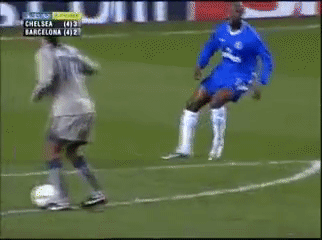
"It's like someone pressed pause and for three seconds all the players stopped and I'm the only one that moves." — Ronaldinho
Ronaldinho scored 13 goals in his 2nd season, the same as Maradona managed in his 2nd season for Napoli, but 05/06 would see Barcelona’s star man go up another level and take the club with him. In 29 league games Ronaldinho scored 17 and assisted another 18, but to focus on numbers would be to downplay what the Brazilian was doing on a weekly basis at the time. He was making La Liga defenders look as out of their depth as amateurs would against him. How could they hope to stop him when he was using skills they had never even seen let alone come up against before? At this time Ronaldinho alone was worth the entrance fee, you knew he’d do something to bring a smile to the face of every single spectator, and maybe a shake of the head due to sheer disbelief at the audacity of the tricks Ronaldinho would not only attempt but pull off.
And this was not just reserved for the defenders of Espanyol or Real Zaragoza, Ronaldinho treated every match, every opponent the same, no matter the importance of the game, he was going to play it his way.
Never was this more apparent than when Barcelona travelled to the Bernabeu in November of 2005. It was in this month that Ronaldinho won the Balon D’or for the one and only time, winning above English midfielders Frank Lampard and Steven Gerrard to add it to his FIFA World Player of the Year awards for 2004 and 2005. He shown why he was the number 1 player in the world in what was the first El Clasico for the future world’s best player, a young long-haired Argentine. But on this occasion it was the senior players, and one in particular who stole the show. With Eto’o giving the visitors an early lead, Ronaldinho doubled it just before the hour mark first skinning Sergio Ramos, before leaving Ivan Helguera and Iker Casillas flat footed and helpless to stop the genius in full flow.
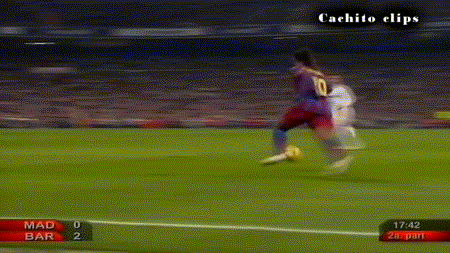
However he wasn’t done yet. 20 minutes later, running past Sergio Ramos with an ease which was only matched in the finish, which left Iker Casillas shaking his head and shrugging his shoulders, perplexed and powerless. At this point, certain sections of the Madrid fanbase felt obliged to applaud Ronaldinho. And not just 1 or 2 either. As the Barcelona players celebrated with their maestro, many Madrid fans can be seen on their feet giving a standing ovation to the man who had single handedly demolished their team. They knew their Galacticos of Beckham, Raul, Zidane, Robinho and Ronaldo had been thoroughly outclassed by the player deemed too ugly to sign. There was nothing ugly about his performance that night, as he took Real apart with a beautiful simplicity, becoming the first Barcelona player to win applause from the Bernabeu since Diego Maradona.
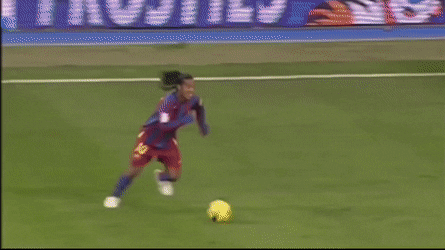
The result was indicative of the gulf that had developed between Barca and Real, as Barca retained their title finishing 12 points clear of their rivals. And in the Champions League Barca were also able to enact revenge on Chelsea before meeting AC Milan in the semi-finals. Just a single goal was scored in 180 minutes, coming from a sumptuous Ronaldinho through ball and finished expertly by Ludovic Guily. The final saw FC Barcelona meet Arsenal, and despite an early red card for the Arsenal keeper, Barca trailed with 15 minutes to go but were able to turn the game around to win just their 2nd European Cup ever and first since 1992. In 45 games Ronaldinho scored 26 and assisted 24, he was the top provider in both La Liga and the Champions League.
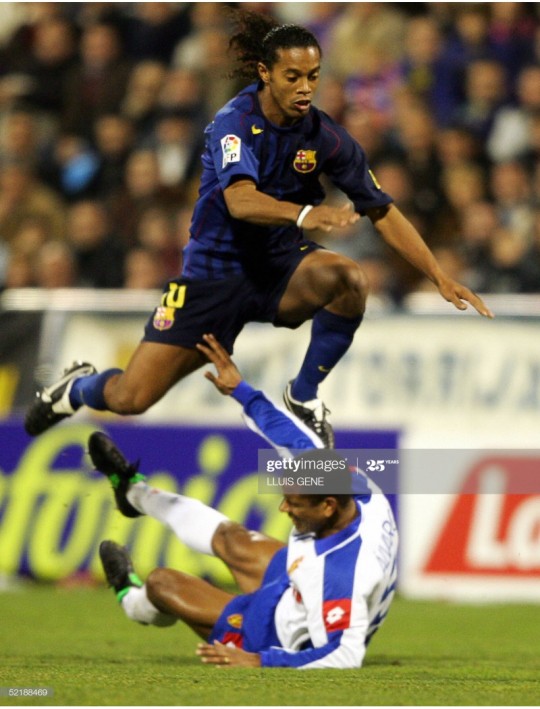
After a hugely underwhelming World Cup, Ronaldinho was able to pick up right where he left off at Barcelona atleast, scoring 21 La Liga goals in 32 matches, the highlight being a special overhead kick against Villarreal. However Barca missed out on the title, due to their head to head record with Real Madrid. With both clubs finishing on 76 points, a 2-0 Real Madrid win in November decided the destination of the title and Barcelona’s far superior goal difference, with more scored and fewer conceded counted for nothing. This was tough to take, but Ronaldinho had racked up 50 goals and 38 assists in 2 seasons. And at 27, Barcelona’s number 10 appeared for all the world to have many years left at the top..
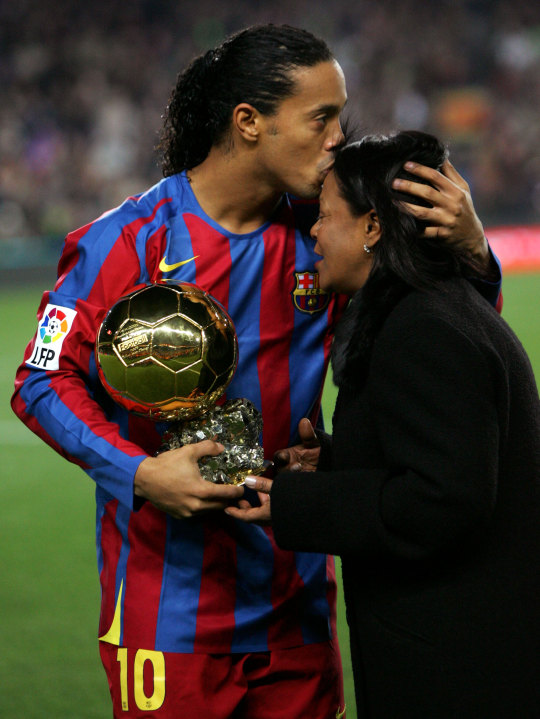
Coming Down
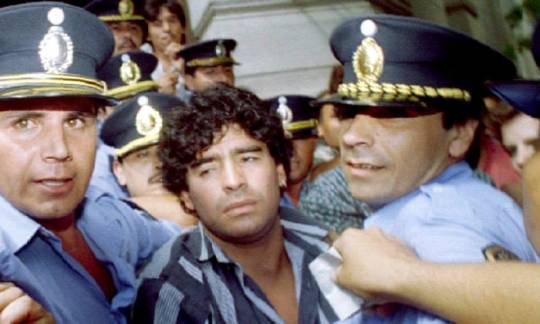
Following the 1990 World Cup which saw Maradona lose the final, the game after declaring Italian fans “hijo de putas” as the cameras panned on him for whistling out the Argentine national anthem in the Stadio San Paulo, supposedly his Kingdom, things would go from bad to worse on his return to the stadium for Napoli.
For now there was a drive in the police’s scrutiny into organised crime in Naples, and noone with connections to the Camorra was guaranteed immunity, including Diego Maradona. His time of everyone turning a blind eye to his off-field activities was up. It was the worst kept secret around that drug problems were beginning to affect his football, and media hints about the dark hole Maradona was falling down with the grip drugs had over him were appearing more and more frequently.
As police investigated the Camorra, listening into conversations, Maradona found himself being taped by police, requesting cocaine and prostitutes. This led to a police investigation into Maradona, meanwhile Napoli chose this time to abandon their lax random drug testing regime, and Maradona was randomly tested twice, both by Napoli doctors and outside doctors brought in by the club. Both tests returned positive. Diego returned to Argentina, but there was no escape to his problems. A police raid at a house he was staying at found him asleep next to grams of cocaine, he was arrested.
Maradona received a 15-month ban from football, having his final season with Napoli cut short after scoring just 6 goals in 18 league games and 10 in 26 in all competitions. His final goal for the club felt like a fitting one at the time, a consolation penalty in a 4-1 defeat away to Sampdoria. Napoli finished the season in 8th, where they finished in Diego’s 1st season with the club. The cycle had been completed and Maradona’s Neapolitan dream had turned into a nightmare.
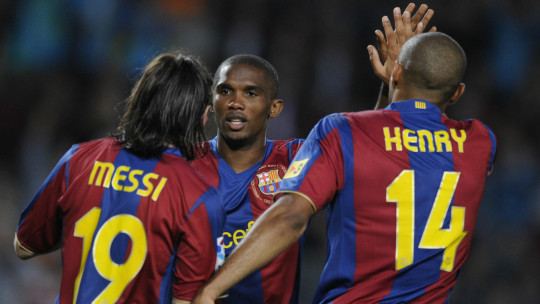
In 07/08 Ronaldinho found himself afflicted with regular injuries for the first time in his career. It couldn’t be put down to bad luck. He had lost his motivation and had stopped looking after his body. His partying and lack of dedication to training saw him lose his peak physical condition. Barcelona’s best and most important player just the season prior, Ronaldinho found that even when he was fit a place in the starting 11 was now hard to secure with the continuing emergence of Lionel Messi and the signing of Thierry Henry.
Barcelona had a poor season, finishing 18 points behind Champions Real Madrid and 10 points behind 2nd placed Villarreal. It signalled the need for a change. Rijkaard was to be replaced in the summer by former Barca midfielder Pep Guardiola, and Juan Laporta declared Ronaldinho needed a new challenge to revive his career. Ronaldinho’s season ended prematurely with an injury, after 9 goals in 26 games, numbers almost identical to Maradona’s last season in Naples. Ronaldinho’s final goal also came in a away defeat where his side shipped 4, as they went down 4-2 to Atletico Madrid. Though the Brazilian’s goal was a touch more special, coming with a spectacular overhead kick.
Just a year on from seeming irreplaceable for Barcelona, Ronaldinho was now surplus to requirements. He joined AC Milan, after rejecting Manchester City who under their new Abu Dhabi owners had placed a bid of £25.5 million.
Maradona and Ronaldinho played by far the best and most consistent football of their career for their 2nd European club. Maradona scored 115 goals in 259 Napoli games, Ronaldinho 94 in 207 for Barcelona. Not including penalties Maradona scored 73 and Ronaldinho 75.
Country
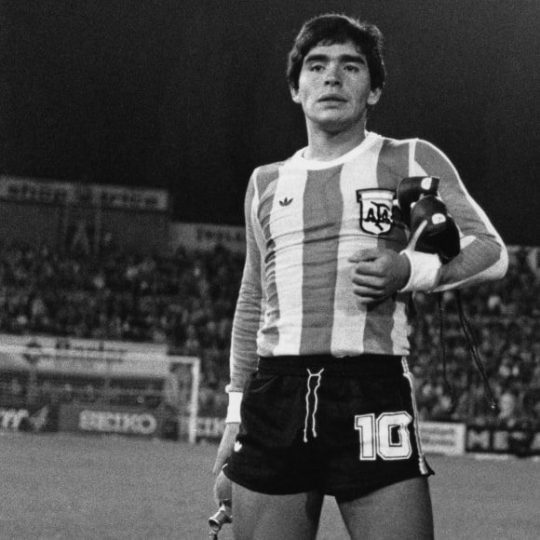
Maradona made his Argentina debut in 1977 aged 16 though missed out on making the World Cup squad the following year which Argentina hosted and won. Diego had to make do with the 1979 World Youth Championships instead, where he netted 6 in 6 including 1 in the final in a 3-1 win over the Soviet Union.
Maradona’s first World Cup came in 1982, in the country he was then plying his trade. Expectations on Barcelona’s new signing were huge, but it didn’t go to plan. He scored in just 1 of the 5 matches he played, a brace against Hungary and was sent off against Brazil, as his frustrations at his repeatedly rough but unpunished treatment at the finals reached boiling point.
Maradona entered the 1986 World Cup with his head in a bad place. With an illegitimate child on the way, conceived from an affair, Maradona was grateful for something to occupy his focus and he played the tournament like a man with nothing on his mind other than to lead his team to glory. In the Quarter-Finals Argentina met England in the first match between the sides since the Falklands War.
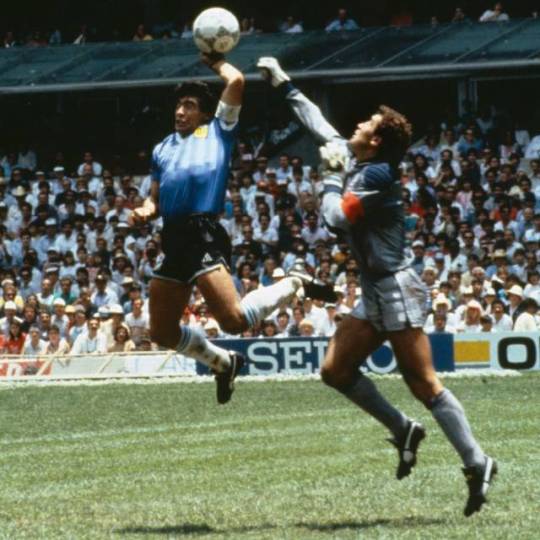
The match came to epitomise Maradona’s legacy as he scored the 2 most famous goals ever within 4 minutes of each other. After England defender Steve Hodge could only lift the ball back in the direction of his own goal, the 5 foot 5 Maradona rose in the air to direct the ball over the outstretched fist of the 6 foot Peter Shilton. Just like the England keeper, Maradona went at the ball with his hand but in such a way both the referee and the linesman missed it. Diego later described the goal as being a “little with the head of Maradona and a little with the hand of God”. The goal subsequently became known as ‘the Hand of God’. If Maradona’s first goal demonstrated his win or die mentality, the second showed the pure artistry of the game’s most gifted genuis. Receiving the ball in his own half, Maradona dribbled past anyone in a white shirt before rounding Shilton and slotting home ‘the goal of the Century’. Maradona had secured his place as Argentina’s favourite son, restoring much needed national pride after the humiliation of the Falklands defeat.
3 days later Maradona single-handedly took Belgium apart, again scoring a brace including another spectacular solo goal. A world cup winning assist in the final against West Germany gave Maradona 5 goals and 5 assists in 7 matches, he played every minute for his side. In the best individual performances ever produced at the FIFA World Cup, Maradona scored or assisted 10 of Argentina’s 14 goals.
The 1990 tournament was the second time Diego played a World Cup in the country where he was playing his club football and he was counting on the support of the Naples people to help him and his team retain the trophy. All seemed to be well after Argentina bounced back from a shock 1-0 defeat to Cameroon by beating the Soviet Union in Naples infront of a supportive crowd, Maradona’s hand again playing a part as he handled on the line to prevent a certain Soviet goal and again got away with it. A 1-1 draw with Romania meant Argentina scraped through in 3rd place and met Group C winners Brazil in the round of 16. Maradona got revenge for 1982 as he produced his best moment of the tournament to brilliantly set up the only goal of the game for Cannigia.
After beating Yugoslavia in a shootout despite a miss from Maradona, Argentina met Italy in Naples. Maradona aimed to stoke tensions between the North and the South, encouraging Neapolitan’s to support the man who had brought their football club so much success and joy, instead of their National side with him saying “The Italians are asking Neapolitan’s to be Italian for a day, yet for the other 364 days in the year they forget all about Naples.” His attempt ultimately proved unsuccessful evidenced by the whistling out of the Argentina national anthem, but Maradona scored the decisive kick in the shootout to put his side into their second successive World Cup final. They would meet Germany again, but that’s where the similarities would end, as the 3-2 final of 4 years ago was replaced with a dour, bad tempered game which Germany won 1-0.
After returning from a 15-month suspension for drug use, Maradona was left out of the Argentina squad which won the 1993 Copa America, but during a humiliating 5-0 home defeat to Colombia in a World Cup Qualifier, the fans began to chant for Maradona, their cries getting louder as one goal after another hit the back of their net. The saviour answered their calls, captaining the side as they narrowly squeezed past Australia in the qualification play-off.
In the months approaching the World Cup, Maradona was more motivated than he’d been for years. Training harder than ever at a remote farm free of all distractions, he had a dramatic weight loss, transformed from the bloated out of shape Diego the world had become familiar with. Intense training, a drastic diet, vitamins, minerals, weight reduction drugs and short-term energy providing drugs were responsible for Maradona dropping almost 3 and 1/2 stone.
Diego’s lack of confidence in conventional medicine meant he relied on his own personal doctors to get him in the best condition possible for USA 94, these being Fernando Signorini and bodybuilder Daniel Cerini. Signorini had serious concerns about Cerini due to the use of anabolic steroids by his girlfriend in a bodybuilding contest which led to a positive drugs test in 1989, but nobody in Team Maradona ever dared speak out against another member of the team, if that person had Maradona’s trust.
And just like Maradona had complete faith in his team, the Nation of Argentina aswell as his own teammates had complete faith in him to power them to a successful World Cup. And their faith seemed well placed after the opening game which saw Argentina take Greece apart 4-0 with a Batistuta hattrick. Maradona made it 3-0 on the hour mark, after a passage of teamplay which highlighted the extent to which the team was playing on the same wavelength. Maradona’s celebration was his most famous ever, as he ran straight at the camera, wide eyed with passion running through him.
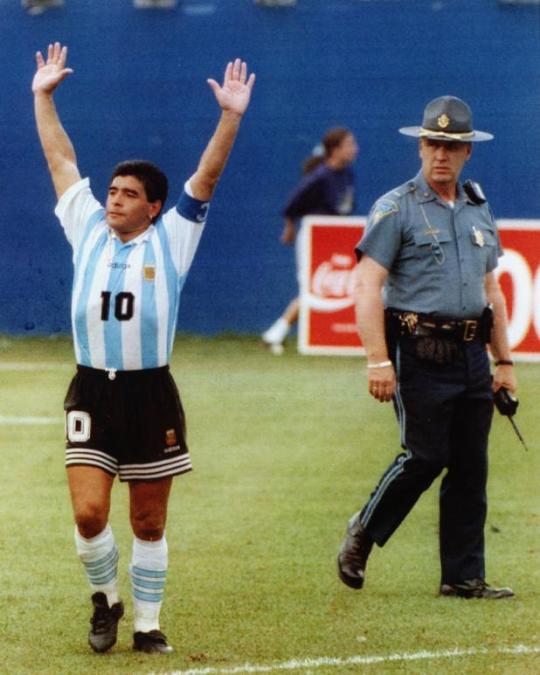
At half-time during Argentina’s 2nd match, a 2-1 win over Nigeria, Maradona was one of two players on each side drawn for a random drugs test. At full time Maradona left the field hand in hand with a nurse, riding a wave of positive emotion after back to back World Cup wins. He was about to come crashing down.
Maradona tested positive. An over the counter, weight reducing drug containing a FIFA banned performance enhancing supplement provided to him by Daniel Cerini was responsible. The relationship and lack of trust between Cerini and Argentina team doctors was so bad that neither was kept up to date with what the other was giving to him, so Argentina were left unaware of the drugs Maradona was taking. Though given the controversy surrounding Cerini they could’ve taken a guess, but noone would dare challenge a Maradona man, all that mattered to anyone was that he was on the pitch. Well after this he wouldn’t be as he received his 2nd 15-month ban in 4 years.
FIFA found Diego not guilty of consciously taking performance enhancing drugs, and believed he was unaware of its components. But regardless he was hit with a ban for breaching Fifa doping regulations. Here Maradona’s history as a drug user went against him. At the Mexico 86 World Cup a Spain player was found to have PED’s in their system, but he escaped punishment with only his doctor being banned. There was no such luck for Maradona who never wore the shirt of his beloved Argentina again. Argentina’s World Cup too effectively ended there as without their talisman they lost to Bulgaria and Romania who knocked them out.
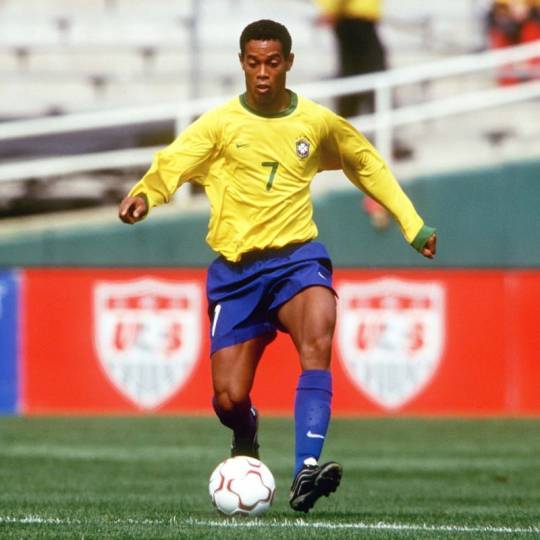
Like Maradona, Ronaldinho also garnered some attention for his performances in a FIFA World Youth Championships, the U’17s version which took place in Egypt in 1997 with Brazil romping to the title scoring 21 goals for the loss of just 2.
1999 was a very busy year for Ronaldinho on the international scene, first he appeared in the U’20 World Championships, before receiving his first cap for the senior team in a 3-0 win against Latvia. Ronaldinho was 19 at the time and in just his 2nd season as a pro, this became even more impressive when he was selected for the 1999 Copa America and scored his first goal for the Selecao at the tournament. It was the other 2 R’s: Ronaldo and Rivaldo who were the stars of the show though, as they helped themselves to 5 goals apiece, as Brazil won the trophy. It was the following week at the Confederations Cup where the teenager truly broke out on the International scene, as he scored in every game bar the final, winning the award for best player and top scorer with 6, including a semi-final hattrick against Saudi Arabia. Brazil went down 4-3 in the final though to hosts Mexico.
The following year Ronaldinho was part of the U’23 squad that competed at the Summer Olympics in Sydney. He was in fine form heading into the tournament, scoring 9 goals in 7 pre-tournament games but the Olympics itself was a disappointment with Brazil exiting at the Quarter-Final stage.
At the 2002 Japan/Korea World Cup Ronaldinho scored 2 and assisted 3 as his country won their 5th title. The victory held many parallels with Maradona’s triumph with Argentina in 1986. Like then, Brazil became champions 8 years after their previous win. And like Maradona, Ronaldinho met and beat England 2-1 in the Quarter-Finals. With England leading 1-0 and the first half drawing to a close Ronaldinho received the ball just inside his own half and took off dribbling, running straight at the heart of the English defence. After beating Ashley Cole with a stepover and a turn of acceleration he kept his cool to slip a perfectly weighted pass to Rivaldo who didn’t disappoint.
Just as Maradona did in the ‘Hand of God’ game, Ronaldinho made his 2nd key contribution to the final outcome just a few game minutes after his 1st. 5 minutes into the second half, Ronaldinho stood over a free kick 40 yards out. With keeper David Seaman off his line anticipating a ball into the box, the ball instead flew over his head and landed just under the crossbar and inside the post. The goal was considered a freak, a stroke of good luck for Ronaldinho with him mishitting an attempted cross. And many people still hold that opinion to do this day, but I do not. The ball is so far away from any Brazilian player, I can’t see how a player as talented as Ronaldinho could misdirect a ball so bad as to completely miss out everyone on his team. Seaman was stood in a bad position, too far off his line for a keeper of short stature and Ronaldinho saw an opportunity to go for goal and executed it perfectly. This goal being dismissed as an accident I think is of great disservice to the Brazilian. But regardless just like the Hand of God goal Maradona scored, Ronaldinho also caused an England keeper to feel great embarrassment.
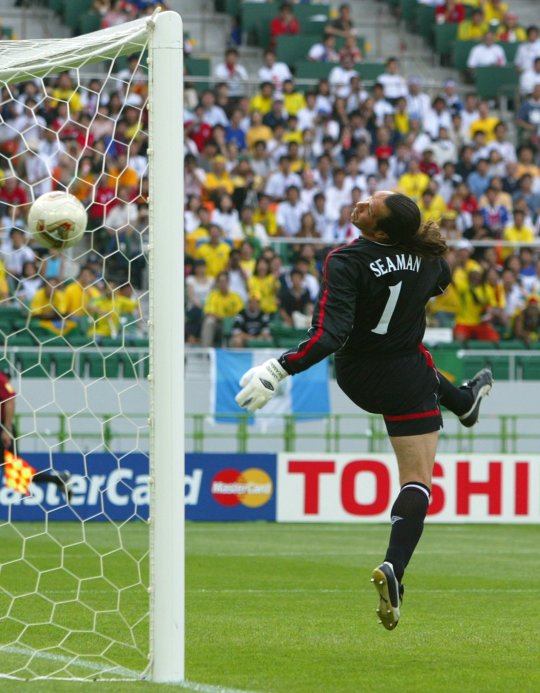
A red card shown to Ronaldinho prevented it from being a perfect afternoon for him as it forced him to miss the Semi-Final. Both Maradona and Ronaldinho’s sole World Cup victories also featured a 2-0 win over Belgium and victory in the final against Germany.
Ronaldinho’s next tournament was the 2005 Confederations Cup which he also won, receiving man of the match for his performance in a 4-1 final win against Argentina in which he also scored. Hopes were high heading into the 2006 World Cup that Brazil could retain the trophy. But the 3 R’s of Rivaldo, Ronaldinho and Ronaldo which worked to devastating effect in Japan and Korea, was replaced by a top heavy attack of Kaka, Ronaldinho, Adriano and Ronaldo. All these stars together didn’t gel as Ronaldinho turned out the worst performances of his stellar international career and Brazil were eliminated in the Quarter-Finals.
Two years later at the Beijing Olympics Ronaldinho was selected as one of Brazil’s overage players as they took the Bronze medal, but he was cut from a Dunga’s initial 30-man squad for the 2010 World Cup, where Brazil were unable to improve upon a Quarter-Final exit. Ronaldinho was captain for a 2013 friendly against Chile, but was not called up for the Confederations Cup that year that Brazil won or the 2014 World Cup they hosted.
Maradona won 91 caps for his national side scoring 34 goals and Ronaldinho won 97 caps, including atleast one a year for 14 years and scored 33 goals. Both men scored 7 in their most prolific years for their country.
Reaching the End
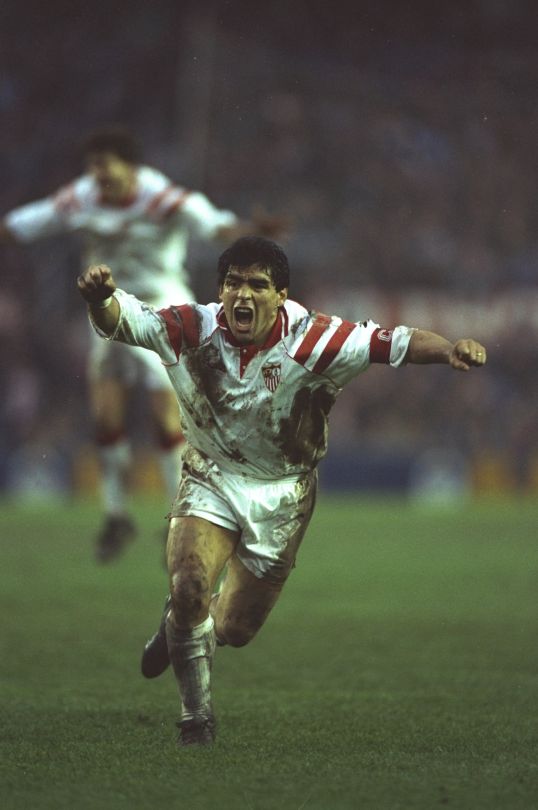
After serving his first 15-month ban Maradona joined his former Argentina manager Carlos Bilardo at Sevilla. Overweight and undisciplined Maradona rarely performs and doesn’t endear himself any further to his employers by spending many nights in a local brothel with his teammates. His lack of fitness and absence from training leads Bilardo to feel unable to trust him to finish a game and he substitutes him. Maradona calls him a “son of a bitch” as he leaves the field. In the dressing room, the two come to blows with Diego later saying “we punched the shit out of each other.” The game would be his last in a Sevilla shirt.
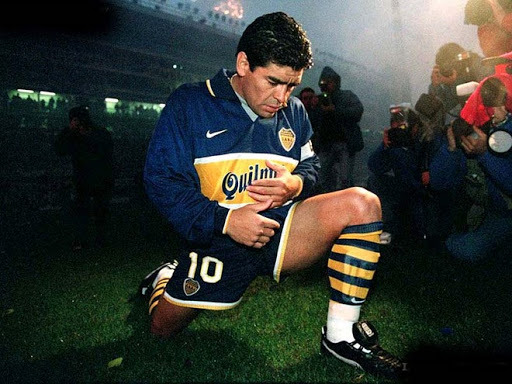
Maradona is then offered a reprieve at Newell’s Old Boys but seems unable to motivate himself. The energy boosting drugs he’s taking at the time mean that after an initial burst of energy he fades badly in games. His stay is shortlived.
Whilst serving a second drugs ban, Maradona tries his hand at management with Deportivo Mandiyu, but they are relegated in a match where Diego is seen on camera calling the referee “a thief, a liar and a gutless coward without balls.” When the ban is over Maradona returns for a second spell with his beloved Boca Juniors where the curtain comes down on his career on his 37th birthday after 31 games spread across 3 seasons.
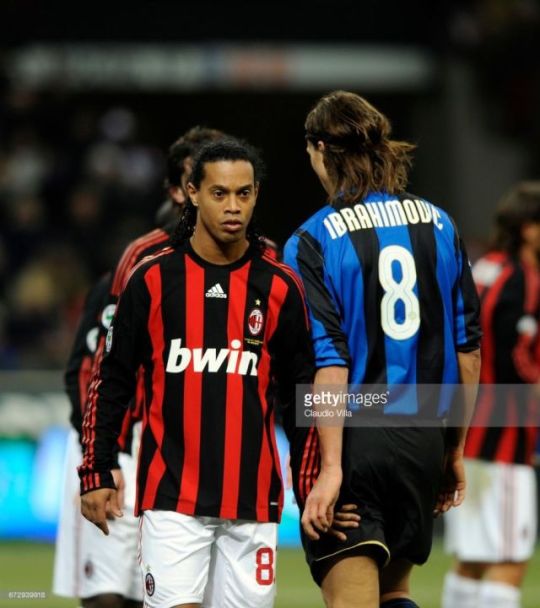
Ronaldinho scored his 1st goal for Milan in a 1-0 derby win over Internazionale. However after a good start, he struggled with fitness and often started games from the bench. A lack of dedication in training and late night partying led departing manager Carlo Ancelotti to declare “The decline of Ronaldinho hasn't surprised me. His physical condition has always been very precarious. His talent though has never been in question."
Ronaldinho did much better in his 2nd season under Leonardo, a fellow Brazilian who was more lenient towards his nighttime activities. Ronaldinho scored 12 and assisted 14, more than anyone else in that season’s Serie A. Likely Milan’s best player that season, he scored 2 braces against Juventus, home and away, and a hattrick against Sienna. However the following season, the arrivals of Robinho and Zlatan Ibrahimovic, plus the stricter coach Massimiliano Allegri saw Ronaldinho’s time in Milan come to an end. Referring to a night Ronaldinho was spotted out in the early hours a couple of days before a Milan Derby, Allegri said in a press conference that “it was not an hour for an athlete to be awake.” That quote applied to many nights during Ronaldinho’s stay in Italy, one night at a Music festival he was implored by Milan fans to go home in order to be ready for training tomorrow, the Brazilian just laughed and told them not to worry. He was determined to enjoy himself and didn’t care who saw him.
This would change when he returned home to Brazil and joined Flamengo, with the club setting up a telephone hotline if they spotted the new club captain enjoying a night out, such were there frequency. 20,000 Flamengo supporters were present for Ronaldinho’s unveiling and although there was some good moments such as when he hit a hattrick during a 5-4 win against Santos in a game they’d trailed 3-0 in, he in the end cancelled his contract and sued Flamengo over lack of payment.
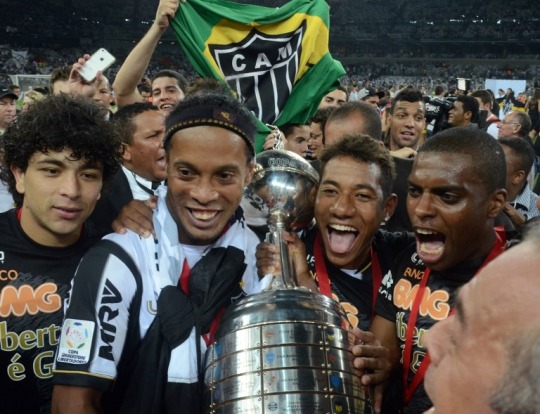
Ronaldinho then joined Atletico Mineiro and won the Bola de Ouro (league’s best player) award in his 1st season. In his 2nd season he won the Copa Libertadores, the first in Mineiro’s history, with Ronaldinho contributing 4 goals and 7 assists to the success. Mineiro lost the first leg of both the semi and the final 2-0 but won both ties on penalties. Ronaldinho was awarded the 2013 South American Footballer of the Year. At the FIFA World Club Cup, following a semi-final match Ronaldinho was mobbed by the players of Raja Casablanca, as they stripped him for souvenirs as a memento from sharing a pitch with their idol.
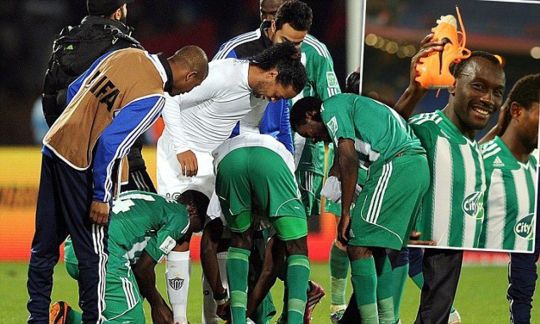
Ronaldinho then moved to Mexico side Queretaro where the highlight came in an away fixture to Club America where he scored twice in a 4-0 win and received a standing ovation from the home fans. Things were not as positive at his next and final club Fluimenese, where he appeared just 9 times before deciding to quit the club, no longer happy with his level. Maradona scored 311 goals in 589 games in club football and Ronaldinho 266 in 699. Both players will be fondly remembered by everyone who saw them on a football pitch, for their contribution to the beautiful game.
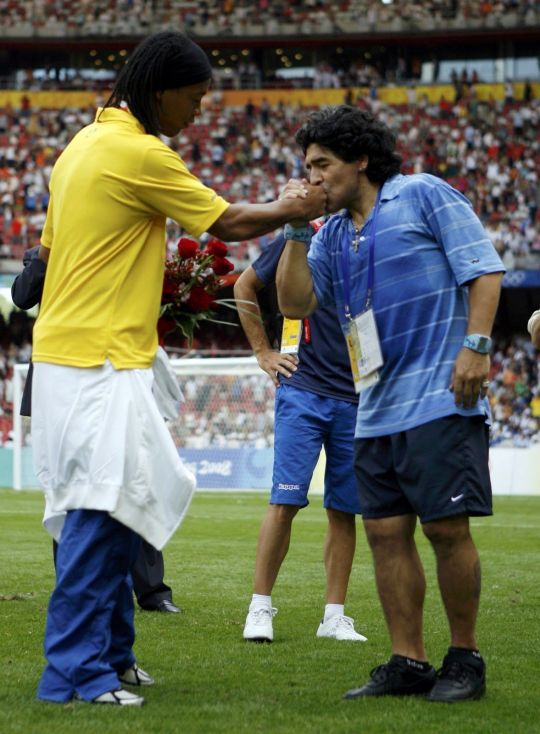
Sources: Hand of God The Life of Diego Maradona by Jimmy Burns, The making of Ronaldinho- how the Brazilian superstar broke through at PSG (FourFourTwo Magazine), Remembering Ronaldinho’s excessive Milan Nights (Bleacher Report)
0 notes
Link
Okay, small football aside here, cause i’m getting fed up with the way articles are written again. For the less euro-centric footballing public, some context: on may 26th the final of the European Cup, the highest accolade for club football worldwide, will be played between Liverpool FC and Real Madrid FC. I could spend a long time discussing the histories of both teams, but in short, both are historically the highest echelon of elite in world football. They have won more matches, more league championships, more European cup games and titles than nearly anyone else. The only two other teams worth discussing in the modern era are Manchester United and Barcelona. Italy’s Juventus and AC Milan have historically been powerful, but that is slowly being fazed out it seems, certainly with Milan. Bayern Munich may also be worth discussing, however, the relative current weakness of the italian and german league renders their inclusion a litte iffy. Anyway...
So, why do these teams keep winning? Why is Real Madrid head and shoulder’s above the rest? The problem is in reality: we don’t have a real scientific answer; if there were an answer, you can be sure that people would be spending their money better. Football and the criteria that we base excellence on are varied and flexible throughout time, with the one exception: winning. If we take that to be the case, then Real Madrid is (without any doubt) the best club in history. (For the record, not my favorite, or even one i like, because they were a team given everything by none other than Franco. They are truly a PR stunt built to be winners by the architect of Spanish Facism). Great, does that mean they cannot be beaten now? No, it doesn’t. Great, so how do you determine who is better? Well, you play the game.
But, why do teams win? The answer is either really simple, or really complicated. Let’s go with simple. The best team has the best players, but that doesn’t make it the team that wins. So we have a small list
player ability
player execution
physical reserve
tactics
luck
That’s it. Great, I hear you saying, can we talk about item 5, sounds like bullshit? Sure. Well, a football game, unlike many other sports which have worked hard to remove the opportunity for luck and chance to make an impact, can be massively affected by individual events--hand balls, steven gerrard slipping, the goal keeper being blinded by the sun, a horrible referee call. Please note before you complain that I said a football game, not a season, a game. A team like Real Madrid, or Liverpool, have a history of winning. So that means that they have the emotional, physical, and financial ability to purchase, support, and teach the finest players and coaches. This gives them a serious advantage, provided that the coaches and staff can coax out this talent on gameday (item 2.). But it doesn’t do everything.
If players of lesser ability perform better (a higher rate of execution) than their opponent and take their chances, or capitalize on a single mistake, then they can win a game. Otherwise how do you think that Manchester City lost a single game this year? Real Madrid, full of talent, and endless resources, still won’t win the Spanish League this year. Because their execution on game day during the league has consistently been lower than their rivals (Barça and Athletico). But in a single game, players are able to focus their attention, to prepare their physical reserve and execution such that they play at their highest levels for individual contests.
When attempting to forecast (i’ve always thought it is stupid, at least if you expect your answer to be accurate or scientific, since we as fans have very little real knowledge that impacts these 5 key items mentioned above) one has to look at the likely lineups, needs to try and average over the talent and the likely execution of the main players.
So, if Cristiano Ronaldo plays to his full ability, he (all-by-himself) is absolutely unstoppable. Ditto Mohammed Salah, completely outrageous. Liverpool’s forward line of Sané, Firmino, and the aforementioned, boneless Salah, are better than the sum of Madrid’s attack. Madrid have the more talented central midfielders and a better center-back pairing. But that means that the answer is... not only unknowable but also completely antithetical to the point of watching football.
We play, and we watch, and we cheer, and cry, and drink, and take part because the answer (game-by-game) is unknowable. The minute we start believing that we should know the outcome before it happens... well, then I’ll start watching darts.
1 note
·
View note
Text
Should I stay or should I go?
The international break leaves us a little time to focus on what is going to be an extremely important Summer for North End with 12 players out of contract. It has been a strange season as everybody knows and North End`s start has been patchy to say the least. I guess the conundrum for the club is whether to wait for the Summer and get some players off the wage bill whilst trying to get half of those out of contract to sign a new deal. I suppose it is always a numbers game and like everything else for the football fan of any era, it is a matter of opinion. Out of the twelve, thre are defenders, five are midfield players and four are stikers. If I was the benefactor of Preston North End (and I`m not!) these are my thoughts on whop should stay and who should go.
Defenders - Darnell Fisher, Paul Huntington and Ben Davies
Darnell Fisher - Offer a 2 year deal. Not always the easiest on the eye and get on the nerves of opponents but he is solid enough for a Championship full back.
Paul Huntington - Offer a 1 year deal. I know people will say this is out of sentiment as another year would give him a testimonial but if Ben Davies leaves we could be short at Centre back and one thing is for sure Hunts would not let us down even at 33 and as fourth choice centre back.
Ben Davies - Offer a four year deal. Clearly won`t be at North End for all of the four years even if he signs but at least it means the club can command the market rate fee for a player of his quality and I think that figure is currently aroun 12-15m
Midfield - Ben Pearson, Alan Browne, Daniel Johnson, Graham Burke and Paul; Gallagher
Ben Pearson - Offer a three year deal. Obviously North End`s Talisman and best player over the last few season. Not indispensable but again worthy of a long contract
Alan Browne - Offer a three year deal. The player I think that is most likely to leave having had the international exposure. Best position is central midfield but has a touch of class and is our best utility player.
Daniel Johnson - Offer a two year deal. I know Johnson has scored plenty of goals and is a very good penalty taker but I wonder which club would take him. I wouldn`t really want him to go but not in Browne or Pearsons class for my money
Graham Burke - Release. On a season long loan in Ireland and not Championship standard
Paul Gallagher - Release. Playing days are coming to an end but having said that offer a 12 month rolling contract as assistant coach
Forwards - Billy Bodin, David Nugent, Josh Ginnelly and Louis Moult
Billy Bodin - Release. Border line one is this but seems injury prone and will score a hatful when he drops down to League One.
David Nugent - Release. The second coming wasn`t what we hoped it would be but takes nothing away from what he did in his first spell with the club. Will probably drop down the league for a season or two...maybe Tranmere
Josh Ginelly - Release. On a season long loan in Scotland and is a player with speed and some ability. Just not progressed how we would have hoped and the Scottish Prem is probably a good standard for him to play in.
Louis Moult- Release. Another tough one this but again the lad seems injury prone. Perhaps a 12 month deal but I think we should look elsewhere
Getting back to the football and a poor result for North End at Rotherham last Saturday. I thought it would be a comfortable win if I am being honest but once again those games against teams near the bottom of the league prove even more difficult than the games against the big boys. The manager was not happy after the game and rightly so but I don1t like managers blaming player if I am honest and North End have two very big home games coming up after the internation break with managerless Sheffiled Wednesday coming to Deepdale before a midweek Ghost derby with Blackburn Rovers.
And finally this week - After 22 years of hurt the Scots finally managed to qualify for a major tournament after a penalty shootout win in Belgrade. Hopefully fans should be back into football grounds by the time we get to next Summer and with three games at Wembley against the Croatia, Scotland and the Czech Republic it seems like our next Summer`s viewing is sorted. The big date is Friday 18th June 8pm kick. England v Scotland at Wembley... say no more!
JR`s HIGH FIVES
CAMBRIDGE TO BEAT BARROW 11/10
A £5 Stake returns £10.50 on bet365
SEASONS STATS
Returns £43.75 Stake £50.00 percentage profit -12.5%
Predictions 10 won 4 lost 6
0 notes
Text
MANCHESTER CITY VS ARSENAL: EARTHQUAKE IN ETIHAD
The fifth round of the Premier League`s going to continue with top-flight matches. This is the unpredictable head-to-head clash, the elite soccer judges “the match on Saturday is attracted and appealing to worldwide spectators”. Let’s watch this match at 4:30pm 17th October on totalsportek.news
The confrontation between two members of the Big Six in the Premier League fifth round will promise some surprises. Although in Etihad, Man City has always been overrated more than Arsenal in recent years, but with the current form maybe Arsenal will make a surprise to former champion Manchester City
BABA YAGA Manchester City
In the last five seasons, Manchester City have won 7 and drew 2 against Arsenal, getting more points from them than any other team. Manchester City deserves to be called Arsenal’s rival in recent years. Man City had only 4 points after 3 Premier League matches. Their slowest start in 10 years. The game with Arsenal will be a chance for coach Pep Guardiola to take the first 3 points at home.
At this time, the biggest obstacle for Manchester City comes from human resources. Both Kun Aguero suffered an injury to his left knee and Gabriel Jesus too. That issue left Pep without a really super striker in the squad. Along with that is the “FIFA” virus which has taken Kevin De Bruyne away, the miracle of midfielder, the play-maker of the Etihad home team. He often plays 100 per cent ability whenever The Citizens meet Gunners. Difficulties piled up again with the former champion.
Even if without key factors but certainly, Pep Guardiola will not change the Manchester city play, the team is well-known for controlling and possession best of the best in the Premier League. The absence of important player in the main squad is also an opportunity for new expensive rookies in this past summer such as Ruben Dias or Fernan Torres to prove their worth.

Manchester City disappoints their spectators at Etihad stadium
Mikel Arteta`s Arsenal is ready to make a EARTHQUAKE at the Etihad
Arsenal has been a lot of differences after Arsene Wenger`s era. Maintaining the team`s identity which is the beautiful play was not easy, at the same time they must manage a tight budget. The transfer policy seems to be difficult for Manchester City’s manager. Unai Emery comes with the ambition to use his philosophy to the Gunner, but somehow for some reason, the plan seems to have failed. The Gunner needs someone who understands the value of the team and players, knows the Premier League and English football cultures well. There is no one deserves more than their old captain Mikel Artete.

Mikel Arteta, Manager of Arsenal gives his team instructions on October 04, 2020. (Photo by Kirsty Wigglesworth – Pool/Getty Images)
The young Spain manager has never managed a professional team before he went to Arsenal, Artete`s coaching role is known as Pep`s no.1 assistant in their rival Manchester City. However, after more than half seasons in charge of this team, the Arsenal’s style of play has changed so much. The recent form has been pretty good in which they won 9 points after 4 matchweek.
The only loss so far has been against the present champion Liverpool. The wonderful integration of new recruits in the summer market such as Partey, Willian or Gabriel is the basis for Arsenal. That was the encouraging signals!! Aubameyang, on the other hand, still excels at attacking in the Gunner’s forward, moreover both Willian and Gabriel are also outstanding Factors, so we can have high expectations of them. Three points at the Etihad Stadium will probably be the target for Mikel Arteta and Arsenal`s players.
Match prediction: The Etihad has been raining goals?
Both of them, Pep Guardiola and Mikel Arteta have constantly pursued a magnificent attacking
Philosophy, so the Fans of two teams will expect a goal rain at the Etihad, by the presence of Mendy, Kyle Walker and especially Daviz Luiz when he will meets old team again. Let’s all look forward to a big game on 17th October. (prediction 2-2)
Predicted line-up
Manchester City: Ederson (1), Kyle Walker (2), Dias (3), Aymeric Laporte(14), Mendy(22), Rodrigo (16), Bernardo Silva (20), Phil Foden (47), Sterling (7), Mahrez (26), Ferran Torres (21).
Arsenal: Leno (1), Daviz luiz (23), Gabriel (4), Bellerin (2), Kolasinac (31), Saka (7), Ceballos (8), Thomas Partey (18), Willian (12), Aubameyang (14), Lacazette (9).
The post MANCHESTER CITY VS ARSENAL: EARTHQUAKE IN ETIHAD appeared first on Total Sportek.
source https://totalsportek.news/2020/10/15/manchester-city-vs-arsenal/
0 notes
Text
Arsenal’s stress is just beginning as Aubameyang, Saka, Lacazette need new deals
LONDON — The announcement that Arsenal had agreed a 12.5% pay cut with their playing staff initially appeared to be a victory for everyone involved. Here was an example of a group of highly paid and much-storied footballers, routinely maligned for existing in a bubble of exorbitant wealth, recognising the reality of the world and making an economic sacrifice for the greater good during exceptional times.
In doing so, the Gunners became the first Premier League club to confirm a salary reduction as opposed to a deferral, setting an example to others by demonstrating both the severity of the financial damage this coronavirus pandemic will likely inflict and an admirable collective willingness to face that challenge. By saving a maximum of around £20 million over the next 12 months — their salaries are repaid in full if they qualify for the Champions League, or 7.5% is returned upon reaching the Europa League — the reduction meant that the club’s non-playing staff were less likely to be furloughed.
– Stream new episodes of ESPN FC Monday-Friday on ESPN+ – Stream every episode of 30 for 30: Soccer Stories on ESPN+
And yet, the negotiations also shone a light on the internal tensions in the Arsenal squad that pose one of the biggest sporting tests to head coach Mikel Arteta as he rebuilds this team.
Contract negotiations have long been an issue for the Gunners. It’s why the club sought to bring additional expertise on board, including former Team Sky lawyer Huss Fahmy and Raul Sanllehi from Barcelona. Yet despite the goal of injecting greater diligence and ruthlessness into their operations, the Gunners conducted their pay-cut conversations against a backdrop of uncertainty surrounding the futures of several influential players.
Arsenal have been in a rebuilding pattern since Arsene Wenger left in 2018 but it seems like the same problems with keeping top players and successfully renegotiating contract extensions await them when football resumes. Stuart MacFarlane/Arsenal FC via Getty Images
Upon taking the helm after chief executive Ivan Gazidis’ departure for AC Milan at the end of 2018, Arsenal head of football Sanllehi and managing director Vinai Venkatesham underlined how they wanted to establish fresh business practices following the end of Arsene Wenger’s 22-year reign and a large-scale restructuring. “Internally, we are calling this period ‘The New Chapter,’ which I think says a lot,” Sanllehi claimed in November 2018. That sea change had multiple components, chief among them a need to improve the club’s methodology around contract negotiations, with the Gunners having lost an array of talent on unfavourable terms. In 2019, Aaron Ramsey joined a painfully long list at the end of last season after the club withdrew a longstanding offer to end what they privately vowed would be the last stalemate of its kind.
2 Related
“You should try to always avoid going into the last year of a contract for many different reasons, from the club’s side and also for the player,” Sanllehi said. “We will try to get clarity earlier.”
Yet a cloudy picture persists, and more than a year later, that search for clarity continues. Pierre-Emerick Aubameyang, Bukayo Saka and Alexandre Lacazette are among a number of players facing uncertain futures, amid the metaphorical clock ticking and growing speculation over exactly the sort of cut-price departure Arsenal wanted to avoid. Aubameyang and Saka are out of contract in 2021, Lacazette in 2022.
– Sources: Ozil facing uncertain future as contract talks stall – Laurens: Inside Arsenal players’ pay cut negotiations
A partial explanation for the delay in tying players down can be found in the upheaval caused by Unai Emery’s departure in November. The Spaniard’s tenure unravelled to an alarming extent, but the club were so reluctant to sack him that there was no immediate replacement lined up. The club opted to give club legend and assistant first-team coach Freddie Ljungberg a chance to prove himself. The Swede had an excellent relationship with Arsenal’s young players from his work as U-23 manager but failed to address the tactical issues that contributed to Emery’s departure. Having held an interest in Arteta when Wenger departed, the Gunners opted to appoint the Spaniard in mid-December.
But as the coronavirus spread across the globe, causing mass disruption to daily life and presenting unprecedented challenges, discussions inside the club turned to cash flow and Arsenal found themselves in the awkward position of having to simultaneously present competing arguments to certain players. The spirit of those conversations was awkward: We need you to take a pay cut to safeguard the club’s future, but also believe us when we say we’re in a position to compete for trophies in future … so why not sign a new long-term contract?
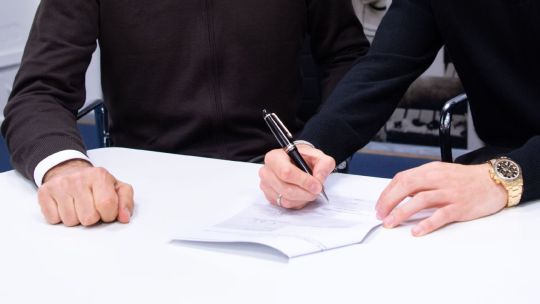
• When does the transfer window reopen? • Karlsen: Possible coronavirus impact • Best ever transfers: 100-51 | 50-1 • This summer’s top free agents • January transfer grades • Latest completed major transfers
The most obvious example of a player caught at the crossroads is Pierre-Emerick Aubameyang, who will have one year remaining on his existing contract whenever the current season ends. The striker turns 31 in June and his next contract will probably be the last big deal of his topflight career. He’s in a strong negotiating position, having shared the Premier League Golden Boot with Mohamed Salah and Sadio Mane last season before backing that up with 17 goals this term, second in the standings behind Leicester’s Jamie Vardy.
Aubameyang’s haul is especially impressive given the team’s broader struggles under Emery. The Gunners’ all-time record goal scorer, Thierry Henry, echoed the sentiments of many supporters when reflecting in December: “Without the goals of Aubameyang I don’t know where we would have been right now.”
No other Arsenal player is in double figures, with Lacazette next best on seven league goals and Nicolas Pepe with four. To underline Aubameyang’s talismanic effect on the squad, Aubameyang was given the captain’s armband when Granit Xhaka was demoted following an altercation with supporters. The striker used his programme notes in January to scotch rumours of a possible departure, adding: “I am committed to it and desperate to bring it back to the top, where it belongs.”
However, there are some senior figures at the club who, while welcoming that public show of loyalty, would have liked to have seen a stronger indication from Aubameyang that he is ready to sign a new deal. Talks have been delayed as a result of the coronavirus, but already it was understood that Aubameyang’s position involved waiting to see whether the club qualified for the Champions League and how well-placed they were to fight for silverware during the theoretical apotheosis of his career.
All of which is difficult to square with Arsenal being the only club to take a pay cut — and one lasting 12 months at that, rather than the three- or four-month deferrals reported at other clubs. Aubameyang’s future is undecided, but other clubs including Chelsea, Barcelona and Inter Milan sense an opportunity he could be tempted away.
Aubameyang’s future feels most precarious at Arsenal given both the leverage he has as the club’s top scorer and the fact that he has only a year remaining on his deal. David Price/Arsenal FC via Getty Images
Saka is at the opposite end of the spectrum in terms of age and influence, but finds himself pondering a similar dilemma. The 19-year-old has been one of Arsenal’s success stories this season, breaking into the first team with maturity, consistency and quality — form made all the more remarkable by his doing so largely while playing out of position at left-back rather than in his preferred guise as a winger.
Like Aubameyang, Saka will have one year left on his deal, and with just 26 first-team appearances under his belt, he already has attracted interest from a host of clubs including Borussia Dortmund in addition to being namechecked for a future international call-up by England head coach Gareth Southgate. He joined Arsenal at the age of 9 and is deeply fond of the club, but rivals will make a compelling case that they’re better positioned to aid his development.
Saka earns a fraction of Aubameyang’s £200,000-a-week wage and would therefore feel the pinch more acutely over the next year, but this isn’t about the money as much as it is ambition.
play
1:42
Gab Marcotti explains why Premier League clubs are hesitant to resume the season.
Arsenal undoubtedly need considerable investment to help them compete again for the Premier League and Champions League. Sanllehi and Venkatesham are engaging characters with the club’s best interests at heart, but do they have the resources to create the conditions for the Gunners to challenge? And if not, will owner Stan Kroenke buck a trend and invest to help bridge the gap?
These are the types of issues Mesut Ozil felt did not get satisfactory answers before declining to join his teammates in taking a pay cut. Talks are ongoing with Ozil and at least two other players, who are all open to finding a solution, but no agreement is close.
Ozil’s £350,000-a-week contract has been a financial strain on the club and often hard to justify, particularly when the midfielder was frozen out under Emery. Rather than that figure hailing the dawn of a new era in which the club could rival the biggest salaries around, it remains an outlier in the first-team squad to this day. Other players have referenced it as a benchmark in negotiations. Arsenal have not played a Champions League match since Ozil signed that deal in January 2018, and a lack of income from Europe’s premier competition has compromised any chance of offering other players a similar wage.
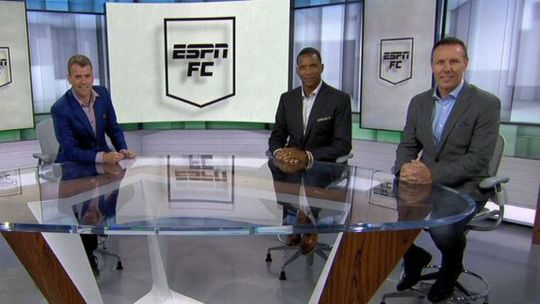
Dan Thomas is joined by Craig Burley, Shaka Hislop and a host of other guests every day as football plots a path through the coronavirus crisis. Stream on ESPN+ (U.S. only).
It’s perhaps little surprise Ozil has yet to be offered any sort of extension, even one on reduced terms. The German midfielder was free to leave last summer, but no club could match his salary. Although he never agitated for a move and has enjoyed a revival under Arteta, it feels as though both Arsenal and Ozil have reached a point where their association is no longer mutually beneficial.
After seven years at the club — eight if Ozil sees out his contract to its conclusion — it will be a landmark moment for the Gunners. Those with intimate knowledge of the player insist his motivation in rejecting a pay cut is not financial — he gives away more than £2m per year to charitable causes — but a question of aspiration, aptitude and intent.
Those questions have been asked of Kroenke for a long time prior to the coronavirus pandemic. They will be asked by prospective new signings, too.
Shkodran Mustafi, David Luiz and Sokratis Papastathopoulos all have deals that expire in 2021. The former has been a divisive figure for some time, while the latter pair are believed to have options in their existing agreements to extend by a further year; all will need addressing soon. Lacazette has two years remaining, giving the club a little more insulation against external market forces, but the French striker has not always looked entirely happy in north London and another tough decision over his future sits on the horizon unless there is a change in mood around the club.
Of course, Arsenal are not alone in facing these challenges. Chelsea were in discussions over a 10% cut for their first-team squad but failed to reach an agreement. Tottenham and Liverpool were forced into reversing their decision to furlough non-playing staff and neither have secured a deferral or cut from their players as yet. At the time of writing, Manchester United insist they are not considering reductions or deferrals, but executive vice chairman Ed Woodward claimed last week that the economic impact would affect their ability to compete in the transfer market when football resumes. And if that is true of a financial behemoth like United, the rest of the Premier League really is in trouble.
The lasting effect of the coronavirus on football is a long way from being known, but as clubs adjust to a future not yet fully formed, a familiar issue plagues Arsenal’s path.
Source link
Tags: Alexandre Lacazette, all blogs, Arsenal, Arsenals, Aubameyang, Beginning, Bukayo Saka, deals, English Premier League, Lacazette, Mesut Özil, Saka, Stress
from WordPress https://ift.tt/3aVmVow via IFTTT
0 notes
Text
Liverpool, champions of freestyle - football

Edin Terzic is an old friend of Liverpool manager Jurgen Klopp. A German of Bosniak descent, Terzic is currently serving as an assistant coach to Lucien Favre at Borussia Dortmund. This is Terzic’s second stint with the Dortmund side. The last time he worked at the club, he served in multiple roles during a highly successful period under Klopp, where Dortmund won two league titles, one German Cup and reached the Champions League final once.When Klopp was handed the reins of Liverpool following the sacking of Brendan Rodgrers in October, 2015, Terzic offered his insight into what fans could expect: “He loves to have like an organised chaos, if you know what I mean,” Terzic told the official website of West Ham, his employers at the time.“What I mean is that there are rules in defence for organisation, but in the offence it is as fast as possible and scoring as many goals as possible, so for watching their games it is very good (sic).”The term ‘organised chaos’ has since been in frequent use in Merseyside, although the ‘organised’ bit seemed to be missing at times in Klopp’s first two-and-a-half seasons. This season and the last, the phrase has bloomed into its full meaning, and blotted out all other teams in the process.Opponents have found themselves struggling to adapt to Liverpool’s style of play, which has gradually become more fluid with time in Klopp’s reign. Stats from this season alone are staggering: with 13 games to go in the league, Liverpool have a 22-point lead over second-placed Manchester City, the biggest ever in the league’s history. The Reds have won 24 of their 25 games, drawing the remaining one.As things stand, Klopp’s side, currently on 73 points after the best start in the league’s history, looks on course to break City’s record haul of 100 points in the 2017-18 season.Having already lifted the UEFA Super Cup and the FIFA Club World Cup, Liverpool are also in the last 16 of the FA Cup and are arguably prime candidates to retain the Champions League title they won last season.It will be a stunning turnaround from the time the German tactician took charge of the club over four years back, when Liverpool were languishing mid-table.

It is not an easy task understanding how Klopp has overseen this turnaround. Gradual changes to the team’s style of play, incredibly shrewd recruitment and having a core group of players as the team’s backbone in the last couple of years have seen the German produce a machine that is steamrolling opponents domestically and abroad.All this, to speak nothing of the money. Klopp’s net spending at Liverpool has been a remarkably low figure of £74.5 million spread across nine transfer windows – an average of £8.28 million per window. For context, Pep Guardiola at City has accumulated a net spending of £475.01 million in eight windows for an average of £59.38 million every window.FIRMINO’S IMPACTWhile that underscores how well Liverpool have recruited during this period, one of the most important players during Klopp’s reign, perhaps the key to the team’s freeflowing attacks, is someone who had been hired by predecessor Rodgers. That player is Firmino, who serves as a brilliant case study of a striker who doesn’t score many goals but is the glue that holds the attack together.A man-marker’s nightmare, Firmino’s rise to prominence is particularly down to his movement on and off the ball as well his positioning. From dropping down to a midfield pivot position, or to central or attacking midfield, Firmino’s flexible role in the Liverpool team serves many purposes.The Brazilian is often dubbed as a false nine for playing much deeper than a traditional centre forward usually does. That term, however, isn’t a fair reflection of Firmino’s job profile. The 28-year-old moving to deep midfield roles helps improve the team’s ball retention and distribution.It often goes unnoticed in games, but isn’t less important than what he does up front. Firmino draws opposition defenders or defensive midfielders forward by dropping down from the first line of attack, providing open spaces for Salah and Sadio Mane.This ability to free up space in the final third, combined with his hold-up play, high work-rate, quick movement and a wide passing range, has helped Firmino turn Mane and Salah into a deadly duo up front. Mane being a more potent attacking threat in the last season-and-a-half can be partly attributed to the freedom he has received off the platform created by Firmino.“He’s very important to Salah and to Mane because he drops back in between the lines to allow Salah and Mane to score as many goals,” Spurs boss Jose Mourinho had said of the forward when he was working as a pundit with Sky Sports earlier in the season.“Firmino drops back and if he attracts a centre-back, it gives more space to the others. If he doesn’t, he’s free in between the lines to get the ball into play… He’s fantastic and I didn’t know the words, I love it now, you call it a ‘work horse’, I understand the meaning of it. He works so hard for the team.”But it’s not just Firmino who makes Liverpool’s attack tick. Klopp’s unconventional use of his full-backs Trent Alexander-Arnold and Andy Robertson virtually in the wings has added another dimension to the way Liverpool play. The duo has been key to Klopp occasionally using a more direct route of football from the wings.For any other team, this would have come at some cost to the team’s defensive organisation. Not at Liverpool, who have added significant flexibility to their style of play. Perhaps this is the secret sauce to their success; unlike most successful teams, you can’t pin down a single style of play on Liverpool. They can do everything, and do it well.FLUID FOOTBALLWhile Klopp’s ‘gegenpressing’, a high tempo pressing approach the team applies when not in possession, has remained a consistent theme since he joined the club, Liverpool have also been able to play a more patient style of football with higher ball possession. The addition of Fabinho from Monaco after the 2018 season has been key in this regard, with the Brazilian immediately improving the team’s ability to retain the ball and its build-up play.Liverpool have maintained an average ball possession of over 60% in the league since the start of the 2018/19 season. Fabinho has also combined well with skipper Jordan Henderson to provide cover to the full-backs.Dutchman Virgil van Dijk has arguably been the best signing of the Klopp era. Widely considered as the world’s best centre-back right now, Van Dijk has not only helped shore up the backline but also improved the build-up tempo from the back. A very simple metric to judge his impact on the team is comparing the goals conceded by the team over the last five seasons. In Klopp’s first three seasons, Liverpool conceded 50, 36 and 38 goals. Last season, that number came down to 22. With 13 games still left, it stands at 15 this season.One player whose impact often slips under the radar is that of goalkeeper Alisson. Very few can match up to the former Roma custodian on current form. A key metric that can sum up his contribution is Liverpool’s ‘expected goals count’, for and against.Widely used across the world by analysts as a reliable tool to measure quality of chances created, expected goals count for the Premier League top 2 this season reveal some interesting bits about both teams.Liverpool’s expected goals count is 54.24, almost six goals below the 60 they have scored. This means that the Liverpool forwards have maintained a high level of finishing accuracy, and have turned half chances into goals more often than not.The ‘expected goals against count’ for Liverpool is even more remarkable: 23.64, 8.64 more than the goals actually conceded—Alisson and his backline are clearing balls they have no business clearing.In contrast, Man City’s counts are closer to their actual figures—expected goals is 67.53, with 65 actual goals being scored and that against is 25.29, where City have conceded 29 goals. Liverpool are simply scoring more and conceding less than they are expected to, while City are scoring slightly less and conceding more.This also serves as a warning to Liverpool: maintaining the kind of results they have produced this season will not be as easy next term. At the same time, these results have shown that opposing teams are finding this Liverpool side less predictable to play against than the ones in Klopp’s first couple of seasons. Klopp had described his brand of football a few years back as ‘heavy metal football’. “I like heavy metal more. I always want it loud,” he had said.The German has since evolved, and so has his game. As Liverpool walk towards their first league title in three decades, it would perhaps be apt to say that Klopp is making all kinds of great music. Read the full article
#1junesportsnews2018#1On1FootballTraining#1sportsparkway#1sportsparkwaysacramentoca95834#1sportsroadhappyvalley#1To1SwimmingLessonsNewcastle#2latestsportsnews#2newssportsutah#2sportscombined#2sportsdrive1#3newssportshighlights#3sportscentreofexcellence#3sportsinelsalvador#3GAstro#4julysportsnews#4sportsinjuryprevention#4sportsnews#48HrTurnaround#5A-side#5newssportsarkansas#5newssportsscores#5sportsinformation#5sportsname#5sportsnews#5sportsnewsinhindi#5sportsperson#5sportsmanofindia#5-aSideFootball#5-a-sideFootballInAlton#6ASideFootball
0 notes
Text
Premier League: Gary Neville point out three problematic areas for Man Utd
The Man Utd team was overrun in the center of the pitch, where there were starts for Andreas Pereira and Fred. For the majority of the clash with Sheffield United on Sunday going 2-0 down to strikes from John Fleck and Lys Mousset:
Gary Neville has identified three problem areas Manchester United have struggled with over the last 10 years. Football fans can book Premier League Football Tickets on our website on exclusively discounted prices.

The former Manchester United right-back was asked to run the rule over United's teams and pick his best XI of the decade. And he identified where the side has struggled in recent times. United have failed to win a Premier League title since Sir Alex Ferguson left in 2013.
And Neville thinks three key areas have left them down in keeping up with their rivals. Neville highlights both full-back slots and central midfield as areas that need improvement.
“Right-back has been a real problematic position for Manchester United from the time when I left,” he said when picking his team of the decade for Sky Sports.
Antonio Valencia is the one who made the position his own over the last 10 years it is too early for Aaron Wan-Bissaka.”
Rio Ferdinand and Nemanja Vidic is the best Manchester United center-back partnership of all time, let alone the last decade. Left-back has similarly been a problem position for Manchester United Ashley Young, Luke Shaw, Matteo Darmian, Marcos Rojo and Daley Blind have all played there it is been like the waltzers!
Saying about Patrice Evra
Patrice Evra was a remarkable left-back and he gets in because of his excellence at the start of the era. Manchester United has not had the quality in the center or left of midfield they had in the early part of the decade.
Paul Scholes is my beloved Manchester United player forever Ryan Giggs is the most decorated and Michael Carrick was a nameless hero for many years that retained everyone else ticking over. Those three are front runners because of their roles in the title victories at the start of the era.
On the right, I have gone for Marcus Rashford because he is the one player in the last four to five years that has come in and looks like he could perform in any Manchester United squad over the previous 25 years.
Neville’s team also included David Gea in goal and Wayne Rooney up front with Robin van Persie.
Manchester United of the current day is lacking some spark and even with Paul Pogba back from injury they need a big January window to improve their situation. United are eighth in the Premier League seven points behind Chelsea in fourth and 24 behind leaders Liverpool who have played a game fewer.

They face Newcastle today having lost to bottom club Watford last week and know another poor result will increase the pressure on Ole Gunnar Solskjaer.
Manchester United were poised to leap to fifth in the Premier League table had they held on for the win in Yorkshire, but they ended the weekend in ninth. Solskjaer's side goes to Astana in the Europa League on Thursday afternoon.
Football fans can get Man Utd Tickets through our trusted online ticketing marketplace. Ticket4football.com is the most reliable source to book Manchester United Football Tickets.
0 notes